

12+ Essay Letter Writing – Format, Examples, Writing Tips
- Letter Writing
- March 4, 2024
- School Letters
Essay Letter Writing: Essay letter writing is a form of written communication that combines the structure and format of an essay with the personal tone and conversational style of a letter. This type of school letter writing can be used to express personal thoughts and opinions on a variety of topics, from social issues to academic assignments.
In essay letter writing, the writer has the freedom to share their ideas and experiences in a unique and creative way, while also adhering to the basic principles of essay writing, such as structure, coherence, and logical argumentation. This Essay Letter Writing is an effective way to communicate complex ideas in a clear and engaging manner.
Also Check: Formal Letter Format Class 8
Essay Letter Writing – Structure of Essay Letter Writing Tips
Content in this article
Essay letter writing follows a basic structure that combines the elements of an essay with the conversational tone of a Essay Letter Writing. Here is a general outline of the structure:
- Introduction : The first paragraph introduces the topic and purpose of the Essay Letter Writing. It should be engaging and clearly state the writer’s thesis or main point.
- Body Paragraphs : The body of the Essay Letter Writing should consist of two or three paragraphs that support the thesis with relevant evidence and examples. The paragraphs should be well-organized and flow logically from one point to the next.
- Conclusion : The final paragraph summarizes the writer’s main points and restates the thesis in a clear and concise manner. Essay Letter Writing should leave the reader with a lasting impression and a call to action.
Essay Letter Writing – Sample Format
Below is a sample format for essay letter writing. This format can be adapted based on the specific purpose and audience of your essay letter:
[Your Name] [Your Address] [City, State, ZIP Code] [Email Address] [Phone Number] [Date]
[Recipient’s Name] [Recipient’s Title or Relationship] [Company, School, or Institution Name] [Address] [City, State, ZIP Code]
Dear [Recipient’s Name],
Subject: [Briefly Mention the Topic of the Essay]
I trust this letter finds you in good health and high spirits. I am writing to share my thoughts on [mention the main topic or purpose of the essay]. As someone deeply passionate about this subject, I believe it is crucial to explore and articulate my perspectives on [provide a brief overview of the essay’s focus].
Introduction: In the introduction, I aim to captivate your attention by [mention how you plan to engage the reader, e.g., sharing a personal anecdote, posing a question, or presenting a relevant quote]. This introductory section sets the stage for a comprehensive exploration of [the main theme or idea].
Body Paragraphs: The body of the essay will delve into [three to four key points or ideas related to the main theme]. Each paragraph will explore a distinct aspect, supported by [examples, evidence, personal experiences, or relevant information]. This structured approach ensures a coherent and compelling presentation.
Conclusion: The concluding section will summarize the key findings and insights discussed throughout the essay. I aim to leave the reader with [a thought-provoking statement, a call to action, or a reflection on the broader implications of the topic].
I appreciate your time and consideration in reading my essay. I believe that [mention the potential impact or relevance of the essay] and look forward to any insights or feedback you may have.
Thank you for your attention.
[Your Full Name] [Your Title or Affiliation, if applicable] [Your Signature – if sending a physical letter]
Feel free to customize this template based on the specific topic, purpose, and recipient of your essay letter. Adjust the language, tone, and content to suit the nature of the essay and the preferences of your audience.
Essay-Letter Writing – Example
Here’s an example of Essay Letter Writing:
Dear [Recipient],
I am writing to share my recent experience with essay writing. As you may know, essay writing is a crucial skill that is required in many academic settings, including college and university courses.
Recently, I had to write an essay on the topic of climate change and its impact on the environment. At first, I found it challenging to organize my thoughts and ideas in a logical and coherent manner. However, with the help of some research and a lot of hard work, I was able to create a well-written essay that received a high grade.
Through this experience, I have learned that essay writing is not just about putting words on paper; it is about expressing ideas and arguments in a clear and persuasive manner. Additionally, I have realized that careful planning and organization are essential for producing a successful essay.
Overall, I am grateful for the opportunity to improve my essay writing skills and I hope to continue honing them in the future.
Sincerely, [Your Name]
Essay – Letter Writing – Example
Essay Letter Writing About Social Media
Here’s an Essay Letter Writing About Social Media
I am writing to share my thoughts on the topic of social media and its impact on our lives. In today’s world, social media has become an integral part of our daily routines, and it is hard to imagine life without it.
While social media has its advantages, such as staying connected with friends and family and accessing a wealth of information, it also has its drawbacks. One of the biggest issues with social media is the spread of misinformation and fake news. Many people tend to believe whatever they read online, without fact-checking or verifying the sources.
Furthermore, social media can also have negative effects on mental health. It is easy to fall into the trap of comparing ourselves to others and feeling inadequate, which can lead to anxiety and depression.
In my opinion, it is important to strike a balance when it comes to social media usage. We should be mindful of the information we consume and make sure it is accurate and reliable. Additionally, we should limit our time on social media and use it in moderation, so as not to let it consume our lives.
Thank you for taking the time to read my thoughts on this important topic.
Essay Letter Writing About Social Media
Essay Letter Writing for Students
Below is an Essay Letter Writing suitable for students:
[Recipient’s Name] [Recipient’s Title or Position] [School or Institution Name] [Address] [City, State, ZIP Code]
Subject: Exploring the Importance of Extracurricular Activities for Student Development
I hope this letter finds you in good health and high spirits. As a student at [Your School/College Name], I am writing to share my thoughts on the significance of participating in extracurricular activities for overall student development.
Introduction: In today’s dynamic educational landscape, the role of extracurricular activities goes beyond the traditional classroom setting. These activities encompass a wide range of opportunities for students to explore their interests, develop essential skills, and foster a well-rounded personality.
Body: Paragraph 1: Broadening Horizons Engaging in extracurricular activities exposes students to diverse fields beyond their academic curriculum. It provides a platform to discover and explore various interests, allowing students to broaden their horizons and gain a more comprehensive understanding of the world.
Paragraph 2: Skill Development Participating in clubs, sports, or cultural activities enhances the development of crucial life skills. Teamwork, leadership, time management, and communication are just a few examples of skills that students can acquire through active involvement in extracurricular pursuits. These skills are not only valuable during the school years but also play a pivotal role in shaping a successful future.
Paragraph 3: Building Character Extracurricular activities contribute significantly to character building. Students learn to overcome challenges, face competition, and cope with both success and failure. These experiences foster resilience, perseverance, and a strong sense of responsibility, qualities that are integral to personal growth.
Paragraph 4: Holistic Development The combination of academic excellence and active participation in extracurricular activities leads to holistic development. Students who strike a balance between their studies and interests tend to perform well academically while also developing a more well-rounded and adaptable personality.
Conclusion: In conclusion, I firmly believe that encouraging students to engage in extracurricular activities is crucial for their holistic development. These activities not only complement academic learning but also nurture qualities that are essential for success in the ever-evolving global landscape.
I look forward to discussing this topic further and exploring ways to promote and support extracurricular involvement among students at [Your School/College Name]. Thank you for your time and consideration.
[Your Full Name] [Your Grade/Class] [Your Signature – if sending a physical letter]
Feel free to customize this letter based on your specific thoughts, experiences, and the requirements of your essay assignment.
Writing an Essay in Letter Form
Writing an essay in letter form involves combining the structure of a formal or informal letter with the content and structure of an essay. Here is a sample essay in letter form:
[Recipient’s Name] [Recipient’s Title or Position] [Organization or Institution Name] [Address] [City, State, ZIP Code]
Subject: Exploring the Impact of Technology on Education
I trust this letter finds you well. As a concerned student passionate about the role of technology in education, I am writing to share my insights on how technological advancements are shaping the learning landscape.
Introduction: Technology has become an integral part of our lives, and its influence on education is undeniable. In this letter, I aim to examine the positive and negative impacts of technology on the educational experience, shedding light on its transformative effects.
Paragraph 1: Positive Impacts One of the notable positive impacts of technology on education is the accessibility of information. The internet has opened up vast repositories of knowledge, making learning resources readily available to students worldwide. This accessibility has democratized education, breaking down barriers to information.
Paragraph 2: Interactive Learning Furthermore, technology has revolutionized the way we learn. Interactive tools, simulations, and virtual classrooms create an engaging and dynamic learning environment. These tools not only cater to diverse learning styles but also foster critical thinking and problem-solving skills.
Paragraph 3: Global Connectivity The interconnected world facilitated by technology allows students to connect with peers and experts globally. Collaborative projects, online forums, and virtual exchange programs contribute to a richer and more diverse educational experience.
Paragraph 4: Challenges and Concerns However, with the benefits come challenges. The digital divide, unequal access to technology, and concerns about privacy and online security are critical issues that need addressing. Balancing the integration of technology while ensuring equitable opportunities for all students is a pressing concern.
Conclusion: In conclusion, the impact of technology on education is profound and multifaceted. While it presents exciting opportunities for enhanced learning, we must address the challenges to create an inclusive educational landscape that benefits all.
I welcome the opportunity to discuss these ideas further and explore strategies for leveraging technology responsibly in education. Thank you for considering my perspective.
Feel free to customize this template based on your specific topic and the guidelines provided for your assignment. Adjust the tone, style, and content to suit the nature of your essay and your audience.
Essay Letter Writing Template
Below is a template that you can use for essay letter writing. This template is a general structure; you can customize it based on the specific topic or purpose of your essay.
[Your Name] [Your Address] [City, State, ZIP Code] [Email Address] [Date]
Introduction: Begin your letter with a brief introduction. Clearly state the purpose of your letter and provide a hook to engage the reader’s interest.
Body Paragraphs: Divide the body of your letter into paragraphs, each addressing a specific point or idea related to your essay topic.
- Introduce the topic of your essay.
- Provide background information to set the context.
- Clearly state your thesis or the main point you will be discussing.
- Introduce and discuss the first supporting point.
- Provide evidence, examples, or facts to strengthen your argument.
- Explain the relevance of this point to your overall argument.
- Introduce and discuss the second supporting point.
- Provide evidence, examples, or facts to support this point.
- Explain how this point connects to your thesis.
- Acknowledge potential counterarguments.
- Refute or address counterarguments, demonstrating the strength of your position.
- Summarize the key points discussed in your essay.
- Reinforce the importance of your thesis.
- Provide a smooth transition to the conclusion.
Conclusion: Conclude your letter by summarizing the main points and restating the significance of your topic or argument. End with a call to action, a thought-provoking statement, or a question to leave a lasting impression.
Closing: End your letter with a formal closing. Choose a closing phrase that matches the tone and purpose of your essay.
[Your Full Name] [Your Signature – if sending a physical letter]
Feel free to adapt this template of Essay Letter Writing based on the specific requirements of your essay or the guidelines provided for your assignment. Adjust the tone, style, and content to suit the nature of your essay and your audience.
Formal Essay Letter Writing
When writing an Essay Letter Writing in Formal tone, you want to maintain a professional tone while effectively conveying your thoughts. Below is a formal Essay Letter Writing:
Subject: An Examination of Environmental Sustainability Practices in [Organization/Institution Name]
I trust this letter finds you in good health. As a dedicated student of [Your School/College Name], I am writing to bring attention to the importance of adopting sustainable practices within our institution, specifically in the context of environmental conservation.
Introduction: Environmental sustainability is an issue of global concern, and its implications resonate across various sectors, including education. In this letter, I aim to shed light on the benefits of implementing eco-friendly initiatives within [Organization/Institution Name] and the positive impact it can have on our community and beyond.
Paragraph 1: The Need for Environmental Sustainability The pressing need for environmental sustainability arises from the escalating challenges posed by climate change. By incorporating sustainable practices within our institution, we contribute to the global effort to mitigate the adverse effects of environmental degradation.
Paragraph 2: Implementing Green Initiatives I propose the implementation of green initiatives, such as waste reduction, energy conservation, and the incorporation of renewable energy sources. These initiatives not only align with global sustainability goals but also instill a sense of environmental responsibility among students, faculty, and staff.
Paragraph 3: Educational Opportunities Furthermore, embracing environmental sustainability provides unique educational opportunities. By incorporating sustainable practices into our curriculum, we equip students with the knowledge and skills needed to address complex environmental issues in their future endeavors.
Conclusion: In conclusion, the integration of environmental sustainability practices within [Organization/Institution Name] is not only a responsibility we owe to the planet but also an opportunity to foster a culture of environmental stewardship among the members of our institution.
I welcome the opportunity to discuss these proposals further and explore feasible ways to initiate and support sustainable practices within our institution. Thank you for considering these recommendations.
Feel free to adapt this formal Essay Letter Writing based on the specific topic and guidelines provided for your assignment. Ensure that the tone remains formal and that the content aligns with the expectations of a formal letter.
Job Application Essay Letter Writing
Below is a job application Essay Letter Writing that you can use as a reference:
[Employer’s Name] [Company Name] [Company Address] [City, State, ZIP Code]
Dear [Employer’s Name],
Subject: Application for [Job Position] – [Your Full Name]
I am writing to express my sincere interest in the [Job Position] advertised on your company’s website. With a strong background in [Relevant Skills or Experience], I am confident in my ability to contribute effectively to your team and the success of [Company Name].
Introduction: In my current role at [Your Current Company], I have successfully [highlight a significant accomplishment or responsibility related to the job]. This experience has equipped me with [mention specific skills or qualities] that align with the requirements of the [Job Position] at [Company Name].
Body: Paragraph 1: Why I am a Strong Candidate I am particularly drawn to [Company Name] due to its commitment to [mention any specific values, projects, or achievements of the company]. My [mention number of years] years of experience in [Your Industry or Field] have honed my ability to [mention key responsibilities or skills relevant to the job].
Paragraph 2: Key Skills and Achievements I possess a proven track record in [mention relevant skills or achievements], as evidenced by [provide specific examples or metrics]. These experiences have sharpened my [mention soft skills] and my ability to [mention any other relevant strengths].
Paragraph 3: Why I Want to Join [Company Name] I am attracted to [Company Name] because of its reputation for [mention any specific aspects of the company culture, projects, or values that resonate with you]. I am eager to contribute my skills and learn from the talented team at [Company Name].
Conclusion: In conclusion, I am excited about the opportunity to contribute to [Company Name] and am confident in my ability to excel in the [Job Position]. I look forward to the possibility of discussing how my skills and experiences align with your company’s needs in further detail.
Thank you for considering my application. I am eager to further discuss how my qualifications make me a strong fit for this position.
Feel free to customize this Essay Letter Writing for job application based on your specific experiences, skills, and the requirements of the job you are applying for.
Essay Letter Writing for Different Audiences
Essay Letter Writing for different audiences involves tailoring your content, tone, and approach based on the specific group you are addressing. Below are examples of Essay Letter Writing for different audiences:
1. Essay Letter Writing to Parents – Topic: Importance of Extracurricular Activities for Student Development
[Your Name] [Your Grade/Class] [Date]
[Parents’ Names] [Parents’ Address]
Dear Mom and Dad,
I hope this letter finds you both well. As your son/daughter and a student at [Your School], I wanted to share my thoughts on the significance of participating in extracurricular activities for overall student development.
[Continue with the body of the essay, discussing benefits, personal experiences, and the impact on academic and personal growth.]
2. Essay Letter Writing to Teachers – Topic: The Role of Technology in Enhancing Classroom Learning
[Teacher’s Name] [School Name]
Dear [Teacher’s Name],
I trust this letter finds you well. As a student in your [Subject] class, I would like to explore the impact of technology on classroom learning and how it can enhance the educational experience for both students and teachers.
[Continue with the body of the essay, discussing positive impacts, examples, and potential challenges.]
3. Essay Letter Writing to Friends – Topic: The Benefits of Reading for Personal Growth
[Your Name] [Date]
[Friends’ Names]
Dear Friends,
I hope you’re doing great. Recently, I’ve been reflecting on the many benefits of reading and how it contributes to personal growth. I thought I’d share my thoughts with you.
[Continue with the body of the essay, discussing the joys of reading, cognitive benefits, and the impact on personal development.]
[Your Full Name]
4. Essay Letter Writing to the Editor – Topic: Addressing Environmental Concerns in Our Community
[Your Name] [Your Address] [City, State, ZIP Code] [Date]
[Editor’s Name] [Newspaper/Magazine Name] [Address]
Dear Editor,
I am writing to bring attention to the environmental concerns in our community, specifically focusing on [specific issue]. It is imperative that we address these issues to ensure a sustainable future.
[Continue with the body of the essay, providing information, possible solutions, and urging community involvement.]
[Your Full Name] [Your Contact Information]
Feel free to customize these letters of Essay Letter Writing for different audiences based on the specific audience and topic you are addressing. Adjust the language, tone, and content to suit the relationship and communication style appropriate for each audience.
Essay Letter Writing About Pollution – Email Format
Here’s an Email Format of Essay Letter Writing about Pollution:
I am writing to you today to express my deep concern about the issue of pollution. In recent years, pollution has become a major problem that is affecting our environment, our health, and our future. It is a global issue that needs to be addressed urgently.
Pollution is caused by various factors, including industrial activities, transportation, and waste disposal. The consequences of pollution are dire, including climate change, respiratory problems, and biodiversity loss. It is important that we take action to reduce our carbon footprint, recycle waste materials, and limit the use of harmful chemicals.
As citizens of this planet, we all have a responsibility to protect our environment and reduce pollution. I urge you to join me in taking action to reduce pollution in our daily lives. We can start by using public transportation, conserving energy, and practicing responsible waste disposal.
Let’s work together to create a healthier and more sustainable future for ourselves and generations to come.
Essay Letter Writing for Various Occasions
Essay Letter Writing for various occasions involves tailoring your content to the specific event or celebration. Below are examples of Essay Letter Writing for different occasions:
1. Essay Letter Writing for Graduation – Reflecting on the Journey
[Your Name] [Graduation Date]
[Principal’s Name] [School Name]
Dear Principal [Principal’s Last Name],
As I stand on the threshold of a new chapter in my life, I find myself reflecting on the incredible journey that has led me to this moment. Graduation is not just a culmination of academic achievements, but a celebration of growth, resilience, and the bonds formed in these hallowed halls.
[Continue with the body of the essay, reflecting on memorable experiences, friendships, and the lessons learned during the academic journey.]
[Your Full Name] [Your Graduation Class]
2. Essay Letter Writing for Thanksgiving – Gratitude for Family and Friends
[Recipient’s Name] [Recipient’s Address]
As Thanksgiving approaches, I find myself overwhelmed with gratitude for the blessings in my life, particularly the cherished relationships with family and friends. In the spirit of thankfulness, I wanted to take a moment to express my heartfelt appreciation for the impact you have had on my life.
[Continue with the body of the essay, expressing specific reasons for gratitude, fond memories, and the significance of the relationship.]
Warm regards,
3. Essay Letter Writing for a Birthday Celebration – Reflecting on Another Year
[Your Name] [Birthday Date]
[Recipient’s Name]
As I celebrate another year of life, I am prompted to reflect on the experiences, growth, and joys that this journey has brought. Birthdays are not just a marker of passing time; they are a celebration of the lessons learned, the relationships cherished, and the memories created.
[Continue with the body of the essay, reflecting on the past year, expressing gratitude, and sharing hopes for the future.]
Cheers to another year,
4. Essay Letter Writing for New Year’s Resolutions – Setting Intentions for the Year Ahead
As the New Year approaches, it offers a fresh canvas on which to paint the aspirations, goals, and intentions for the coming months. In the spirit of new beginnings, I wanted to share my reflections on the year gone by and outline the resolutions that will guide my path in the year ahead.
[Continue with the body of the essay, reflecting on achievements and challenges of the past year, and outlining specific resolutions.]
Wishing you a wonderful New Year,
Feel free to customize these letters of Essay Letter Writing in different occasions based on the specific occasion and your personal sentiments. Adjust the language, tone, and content to suit the nature of the event or celebration.
College Admission Essay Letter Writing
Writing a college admission Essay Letter Writing is an important step in the application process. Below is a sample college admission essay letter:
[College Admissions Office] [College/University Name] [College/University Address] [City, State, ZIP Code]
Dear Admissions Committee,
I am writing to express my sincere interest in joining the [College/University Name] community as a [Your Intended Major] major. As a passionate and dedicated student, I am eager to contribute to and benefit from the academic environment and unique opportunities offered by your esteemed institution.
Introduction: Ever since I attended [Your High School Name], I have been inspired by the pursuit of knowledge and a desire to make a positive impact on the world. [Provide a brief introduction to your academic background and interests.]
Why [College/University Name]? [College/University Name] stands out to me as the ideal place to further my academic journey due to [mention specific reasons such as renowned faculty, exceptional programs, unique resources, or a particular campus culture]. The [Your Intended Major] program, in particular, aligns perfectly with my academic and career aspirations.
Unique Qualities and Achievements: Throughout high school, I have consistently demonstrated my commitment to excellence in [mention specific academic or extracurricular achievements]. These experiences have not only shaped my character but have also prepared me for the challenges and opportunities that a rigorous academic environment like [College/University Name] provides.
Contributions to Campus Life: I am excited about the prospect of contributing to the vibrant campus life at [College/University Name]. My experiences in [mention relevant extracurricular activities or community service] have instilled in me a sense of leadership, teamwork, and social responsibility.
Personal Growth and Goals: Beyond academics, I see [College/University Name] as a platform for personal growth and exploration. I am eager to immerse myself in the diverse learning experiences, engage with a community of like-minded individuals, and broaden my perspectives.
Conclusion: In conclusion, I believe that my passion for [Your Intended Major], commitment to academic excellence, and dedication to contributing positively to campus life make me a strong candidate for admission to [College/University Name]. I am excited about the prospect of becoming a valuable member of your community and contributing to the rich tapestry of experiences at [College/University Name].
Thank you for considering my application. I look forward to the opportunity to contribute to and benefit from the vibrant academic environment at [College/University Name].
[Your Full Name] [Your High School Graduation Year] [Your Signature – if sending a physical letter]
Feel free to customize this letter based on your specific experiences, aspirations, and the requirements of the college or university you are applying to. It’s important to convey your unique qualities, achievements, and reasons for choosing the institution.
FAQS for Essay Letter Writing – Format, Examples, Writing Tips
What is the basic format for an essay letter writing.
The basic format of Essay Letter Writing includes a salutation, introduction, body paragraphs, and a conclusion. Include your contact information, date, and a closing signature. The structure may vary depending on the type of letter and audience.
How do I start an essay letter?
Start with a salutation addressing the recipient. In the introduction, engage the reader with a compelling hook, such as a question, quote, or personal anecdote, to draw them into your essay.
What should I include in the body paragraphs of an essay letter?
Each body paragraph should focus on a specific point or idea related to your topic. Include supporting evidence, examples, or personal experiences to strengthen your arguments or convey your message effectively.
How do I end an essay letter?
Conclude your essay letter by summarizing key points, reiterating the main message, or providing a call to action. End with a closing statement that leaves a lasting impression on the reader.
Can you provide examples of Essay Letter Writing for different purposes?
Certainly! Essay Letter Writing Examples include job application essay letters, college admission essay letters, letters to friends on specific topics, and letters addressing various occasions. Tailor the content based on the purpose and audience.
Essay Letter Writing is an important skill that has been around for centuries. It serves as a means of communication and expression of ideas and emotions. With the advancement of technology, letter writing has evolved, but its importance has not diminished. Whether it is a formal business letter or a personal letter to a friend, the art of letter writing requires attention to detail, clear communication, and an understanding of the audience.
Related Posts
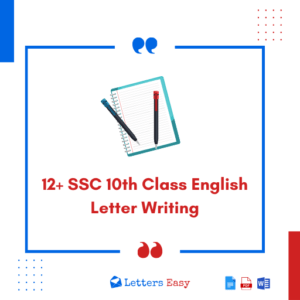
12+ SSC 10th Class English Letter Writing Format, Tips, Examples
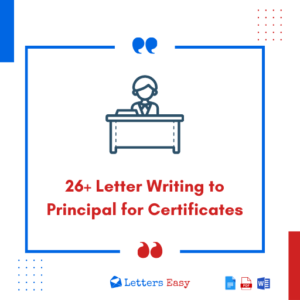
26+ Letter Writing to Principal for Certificates – Format & Samples

20+ Letter Writing in English for Class 6 – Examples, Tips, Topics

10+ Samples for Write a Letter to your Principal for 3 Days Leave

25+ Undertaking Letter Format for Students – Tips, Examples

30+ Sick Leave Letter to Class Teacher from Parents – Templates
Leave a reply cancel reply.
Your email address will not be published. Required fields are marked *
Name *
Email *
Add Comment
Save my name, email, and website in this browser for the next time I comment.
Post Comment
- Features for Creative Writers
- Features for Work
- Features for Higher Education
- Features for Teachers
- Features for Non-Native Speakers
- Learn Blog Grammar Guide Community Events FAQ
- Grammar Guide
How to Write a Letter With Examples and Tips

Sarah Oakley

Table of Contents
How do you write a letter, how to format a letter in 6 steps, letter format examples, how prowritingaid can help you with writing letters.
Letter writing is still a popular form of communication in a world where we expect instant responses thanks to email and phone calls.
USPS reports they process and deliver an average of 421.4 million mail pieces every day. Millions of those are letters being sent all over the world, not just to the US.
Letter writing is a great way to make your voice heard, make things happen, and show how much you care about something. Writing a letter carries more weight than an email or phone call because it takes more effort, and there are bigger costs involved.
In this article, we’ll talk about how to write a letter to clearly convey your points, and we’ll show you some examples you can use for inspiration.
To write a letter , you need to decide if you’re going to handwrite or type. Handwritten letters show you took the time to express your thoughts on paper. However, typing can save you some time, and you can still hand sign it after it’s printed.
The next part of writing a successful letter is thinking about what you would like your letter to achieve. You could write a love letter, hoping to get a date. It could be a cover letter to accompany your résumé, which needs to secure you an interview. Think about the result you hope to achieve before you plan what you want your letter to say.
You’ll need to decide if your letter will be formal or informal. Depending on the recipient and the reason for the letter, the formality is important, as it can affect how the message is received. If you are writing a personal letter to someone you know, opt for informal. However, if it’s for a job application or for an official, the reader would expect you to use formal letter writing.
Another thing to consider when writing a letter is your tone, which is how your letter sounds to the person reading it. If you’re writing a complaint, you want the reader to know you’re frustrated, but you don’t want to sound rude.
When you’re ready to write your letter, set some time aside for it. Before you write your letter, make a plan for what you’re going to say. Get your writing tools together as well as some envelopes and stamps, then you can start.

A letter is a piece of writing that is easy to identify by the written format. Letters follow a similar format to allow the reader to find and skim the important information.
The formatting details in the next six steps will tell you how to write a letter that gets your point across.
How to Head a Letter
Letterheads start with the sender’s address aligned to the left, right, or in the middle. If you write formal letters, you will need to include this as the receiver may need to respond in writing. For informal letters to those you know, forgo your address if you want to.
If you write lots of letters, consider getting some letterheads printed. Having a stack of paper with your details already printed can save you a lot of time. Alternatively, you can get a custom stamp printed and an ink block.

Which Side Do You Write the Date on a Letter?
Under the sender’s address , you’ll need to add the date you’re writing the letter. Write the date on the same side of the page as your address.
For personal letters where you haven’t included the sender’s address, you still need to add the date. The date gives context to your letter, so you don’t want to leave it out.
If you’re writing a formal letter, write the date out in full with the month first, then the day, then the year. For example, a letter written on 2023-03-15, you would write March 15, 2023. In the US, you need to add a comma between the day and the year.

Be confident about grammar
Check every email, essay, or story for grammar mistakes. Fix them before you press send.
Where to Include the Recipient’s Address on a Letter
The recipient’s address needs to be aligned to the left-hand side on the line below the date.
When writing a formal letter, start the recipient’s address with their name on one line, followed by their job title on the next line. Then write the company name and address below that.
For personal letters, you don’t need to include your recipient’s address.

How to Write an Introduction in a Letter
The introduction in your letter is the greeting and the first paragraph. Leave a line space under the address and start with the greeting.
There are many possible greetings you could start your introduction with, such as “Dear [recipient’s name].” For a formal letter, write their entire name. Alternatively, you can write “Mr.” or “Ms.” followed by their initials and surname. If it’s an informal letter, just write their first name.
If you don’t know the name of the person you’re writing to, you can use “Dear Sir or Madam.” To get the right address for your letter when writing to a company, you can call and request the name of the person you need to write to.
After the salutation, write your introductory paragraph. Always include the subject in your first sentence, and follow up with your reason for writing. For example, in a complaint letter about a faulty product, you would mention the product and any purchase reference in the first sentence, then explain you would like to complain about the quality of the product.
In a personal or informal letter, still include the subject and reason for writing in your first paragraph. This lets the reader know what to expect in the letter and sets the tone.

What to Write in a Letter
The body of your letter is where you’ll add the main points you want to address. All the points should be in an easy-to-follow order so your reader doesn’t lose the overall message of your letter.
Each paragraph should start with an opening sentence, followed by your evidence or additional information. Then you’ll want to close with a concluding sentence that connects to the next paragraph.
The length of your letter can differ depending on what you are writing about. Don’t write too much to make your letter look longer, as you’ll risk losing the reader’s attention. However, you don’t want to leave anything essential out of your letter, either.
If you’re struggling to order your points or know what to say, try using a template to guide you. Just remember, each letter is unique, so don’t rely on a template to write 100% of your letter. You don’t want your letter to sound generic or copied from the internet.
Ways to Sign a Letter
The last part of letter writing is the signature or sign-off. How you sign your letter will depend on the formality of the letter and if you know the recipient.
For formal letters, use “Yours sincerely” when you know the recipient, and “Yours faithfully” when you don’t. If you are writing to an official, such as a politician you will never meet, you can use “Yours truly.”
Sign-offs are not set in stone, though some people might tell you they are. It’s best to use what feels right for your letter based on the formality and tone you’ve used so far.
In an informal or personal letter, you can sign off with something a lot friendlier. You could use “With all my love” or “Your devoted friend.”
If you are typing your letter, you can handwrite your signature under the sign-off to show you have checked it and are confirming the words above are all your own.
For formal letters, include your full name in capital letters under your signature to be clear about who is signing the letter.

If you’re still not sure about how to write a letter, we have some examples to help you get started.
Here is an example of the indented paragraph format:
123 High Street
London, OH 12345
November 23, 2022
Martin Jones
Marketing Director
Advertising Company
456 West Street
London, OH 23456
Dear Mr. M Jones,
I recently saw your television advertisement for the new beauty salon on 7th Street, and I thought you did a great job. I would like to inquire about your rates for a 30-second advertisement for my beauty salon.
Please send me the costs for filming and producing an advertisement for television. I believe this will benefit my business and bring in new clients.
If there is any further information you require for the quotation, please get in touch with me at the above address.
Yours faithfully,
If you’re using the indented paragraph format, indent the initial line. You should then format subsequent paragraphs with indented first lines. The indented paragraph format is a common format used for both business and personal letters.
Here is an example of the block letter format:
1 New Street
Manhattan, NY 12345
January 3, 2023
Managing Director
Example Company
123 Old Road
Brooklyn, NY 67891
Dear Mr. J Bloggs,
I’m writing to you today to discuss the price increase in my energy bill dated December 30th, 2022. I don’t recall being notified of this increase.
As you did not notify me of the increase, I did not budget for it. I cannot afford the extra amount and would appreciate it if you revert my charge back to the previous amount.
I look forward to hearing from you.
In this format, align everything to the left, including the addresses and the date. You do not need to indent your first line, but you should leave spaces between paragraphs. You’ll see the block letter format used by businesses as a formal letter format.
Here is an example of a simplified style letter format:
Janet Jones
Retail Company HQ
456 New Acre Drive
Denver, CO 12345
March 30, 2022
Store Manager
Retail Company
Colorado Springs, CO 34567
STOCK LEVELS OF BANANAS AND ORANGES
The stock levels of bananas and oranges in your store are getting low. I would recommend you place an order for these items soon to ensure you continue to provide these to your customers.
Please let me know if you cannot place an order for these products before April 5th, 2022.
I look forward to seeing you again on my next store visit.
Yours sincerely,
The fundamental difference between this format and the others is that it includes a subject line instead of a greeting.
Once you’ve written your first draft of a letter, you’ll want to edit it to ensure it reads correctly and doesn’t have any grammatical errors. That’s where ProWritingAid can help you.
Start by reading your letter aloud, as this will help you spot any glaring errors. Then you can run it through ProWritingAid to see if there’s anything you’ve missed. The Realtime checker picks up on spelling and grammar errors and passive voice. It also shows places where you can improve readability, which is important for your reader to understand what you’re saying.
You can use the Style and Grammar Reports for a more in-depth analysis of your letter. If you are writing business letters, select the specific document type from the drop-down menu in the Realtime sidebar before you run your reports. This will ensure your results focus on the specific requirements for your letter type.
Even if you’re not typing out your letter, write a first draft and edit it before you write the version you’ll be posting. For tips on editing, you can check out some of the other articles on the ProWritingAid blog.
We hope this article has helped you learn how to write a letter that achieves the results you want.
Get started with ProWritingAid
Drop us a line or let's stay in touch via :

How to write a letter
HOW TO WRITE A LETTER: A GUIDE FOR TEACHERS AND STUDENTS

In this age of digital communication, writing letters is becoming something of a lost art. Emails and text messages can be sent instantly and for a fraction of the cost good old-fashioned snail mail can offer.
So, why bother teaching letter-writing at all? Well, though electronic ‘letters’ are often freer in formatting and language than physical letters, we can also apply letter-writing rules to electronic media. However, physical letters do offer some distinct benefits of their own too.
A WELL-WRITTEN LETTER CAN CHANGE THE WORLD.
Whilst we pride ourselves here on how to write a great essay, information report, or another text type that is primarily used in an educational setting, the ability to craft a powerful letter or email has literally changed people’s lives, altered the course of history and been the difference between life and death in some cases.
It can be the one opportunity to remove all the noise and confusion on any subject area and honestly tell someone how you feel straight from the heart. Pen to paper.
For whatever reason, a thousand emails, tweets, and likes will never have the same impact as a well-crafted handwritten letter. Its very creation and existence show your reader how passionate and genuine about what it contains.
Letters fall under the transactional writing category; if you want to know more about transactional texts, be sure to check out our in-depth guide here.

COMPLETE LETTER WRITING UNIT FOR STUDENTS
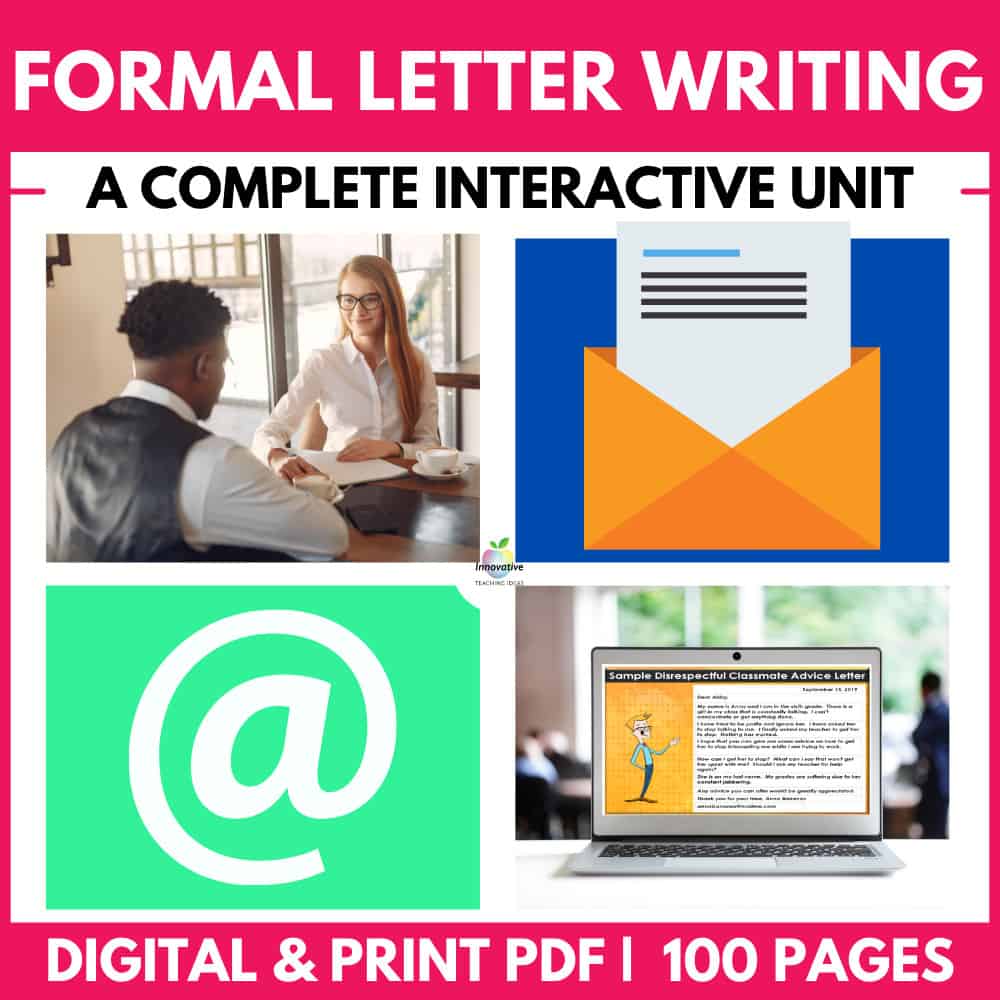
Over 100 PAGES of engaging RESOURCES , various letter SAMPLES , LESSON PLANS and INTERACTIVE DIGITAL RESOURCES to teach your students how to write amazing LETTERS and EMAILS .
Teach this life skill with confidence through this excellent ALL-IN-ONE RESOURCE . No preparation is required.
3 REASONS TO TEACH LETTER WRITING
1. the personal touch: .

Those of us who grew up in an age before the internet got going will remember the excitement of waiting for and receiving a letter. Many of us will have had childhood pen pals we never met or received love letters from our teenage sweethearts. Maybe some treasured letters are still securely stored in a bedside drawer.
There is something extremely personal and intimate about the letter that email cannot capture. Letters are physical, and their increasing rarity makes them seem even more intimate today.
In this day and age, receiving a personally written letter is something a unicorn in communication terms. Students who know how to produce a well-crafted letter can use it to their advantage. For example, any business hiring manager will undoubtedly be numbed by the constant torrent of emails flooding their inbox.
That mailed resume accompanied by a handwritten letter that waits for them on their desk in the morning will surely stand out and secure an attentive read. The letter, in its various forms, is guaranteed to stand out and make an impact in an age where the vast majority of communication is digital.
3. Handwriting

Just as letter writing has declined in popularity, so too has the emphasis on well-developed handwriting skills. You can, if you wish, take the opportunity here to have the students work on their handwriting skills.
While students may protest that they can accomplish the task much quicker by word-processing, another benefit of handwriting a letter is that the speed becomes almost meditative. This allows students to focus carefully on their grammar and punctuation without always resorting to the crutch of spell-checkers and grammar correction software.
FORMAL AND INFORMAL LETTER WRITING: WHAT’S THE DIFFERENCE?
The table below outlines whether your letter should be written formally or informally, with some suggested prompts . Whilst there are many similarities, a formal letter should always be considered as a document with a real purpose and ramifications.
FORMAL LETTER FEATURES
USED FOR PROFESSIONAL COMMUNICATION THESE DOCUMENTS FOLLOW A PRESCRIBED FORMAT. THEY ARE WRITTEN IN A PASSIVE VOICE FOR A SPECIFIC PURPOSE AND IN MANY CASES ARE LEGALLY BINDING. SOME EXAMPLES ARE.
INVITATION Make someone feel special about an upcoming event.
APPLICATION Write a professional letter of application for a job or group you wish to join.
REFEREE / REFERENCE Vouch for another’s skills, personality or credibility.
ACCEPTANCE & REJECTION Approve or deny an applicant in a professional manner.
MAKE AN OFFER Make a formal and binding offer in writing.
EXIT / RESIGNATION Formally leave or step down in a professional and dignified manner.
INFORMAL LETTER FEATURES
USED FOR PERSONAL COMMUNICATION THESE LETTERS HAVE NO PRESCRIBED FORMAT AND ARE WRITTEN IN AN ACTIVE VOICE.
THANK YOU Let someone know you appreciate their efforts.
CONGRATULATIONS Acknowledge someone’s achievements in life.
GRIEVANCE / LOSS Acknowledge someones personal loss or suffering and let them know you care.
FRIENDSHIP & LOVE Tell someone how special they are to you and why?
LETTER TO THE EDITOR / MAYOR ETC. Let someone know how their actions and adversely affect you and others.
LETTER TO SELF Give your older or younger self some words of advice and wisdom.
INFORMATIONAL UPDATE Write a letter back home telling them what you have been up to.
HOW TO WRITE FORMAL LETTERS
The writing process begins with planning.
As with all genres of writing, the process of formal letter writing should start with planning. This should involve sketching a brief outline from which to work rather than a comprehensive detailing of minutiae. The plan should include:
- Note addresses, names etc. – who are you writing to?
- Record the purpose of the letter – what do you want to say?
- List points to be made (each will form a paragraph) – how will you say it?
- State action point – what do you want the reader to do?
Formal letters can be written for a wide range of purposes and may come in various shapes, including a letter of complaint, a cover letter accompanying a job application, a letter of invitation, a reference letter, or a proposal letter – to name a few. Though each will adhere to its own rules of formatting and tone when writing formal letters, students should avoid using slang or contractions.
Language should be straightforward and polite. Encourage students to avoid bursts of purple prose in favor of direct, functional language. Usually, a formal letter will be written to achieve a particular end and should be written with that end foremost in mind. Students should avoid meanderings and stay firmly focused on the task at hand.
TIPS FOR WRITING GREAT FORMAL LETTERS

- The writer’s address should be in the top right-hand corner.
- The date should be written below the writer’s address
- The recipient’s name and address are below that on the left-hand side
- Use the correct opening (Dear Sir / Madam, Dear Mrs Ferguson, etc.)
- Use Standard English
- The opening sentence should explain the purpose of the letter
- Each paragraph should make a single specific point
- Use an appropriate formal tone and register in the wording of the letter
- Avoid contractions, slang, and abbreviations
- The concluding ‘action point’ paragraph states what you want the recipient to do
- The formal ending, such as Yours Sincerely or Yours Faithfully
A Note on Salutations
If the student knows the intended recipient’s name, start with Dear Mr. / Mrs Surname and end with Yours Sincerely. If they don’t know the recipient’s name, start with Dear Sir / Madam and end with Yours Faithfully.
Use of Rhetorical Devices
As mentioned, formal letter writing focuses on attempting to convince someone to take some course of action or other. To do this, it is helpful to employ some rhetorical devices to make the writing more persuasive . Some useful techniques to encourage your students to employ include:
Direct Address: Using the pronoun ‘you’ in a formal letter makes the reader feel that you are speaking directly to them. This helps to engage the reader and encourage them to continue reading the letter.
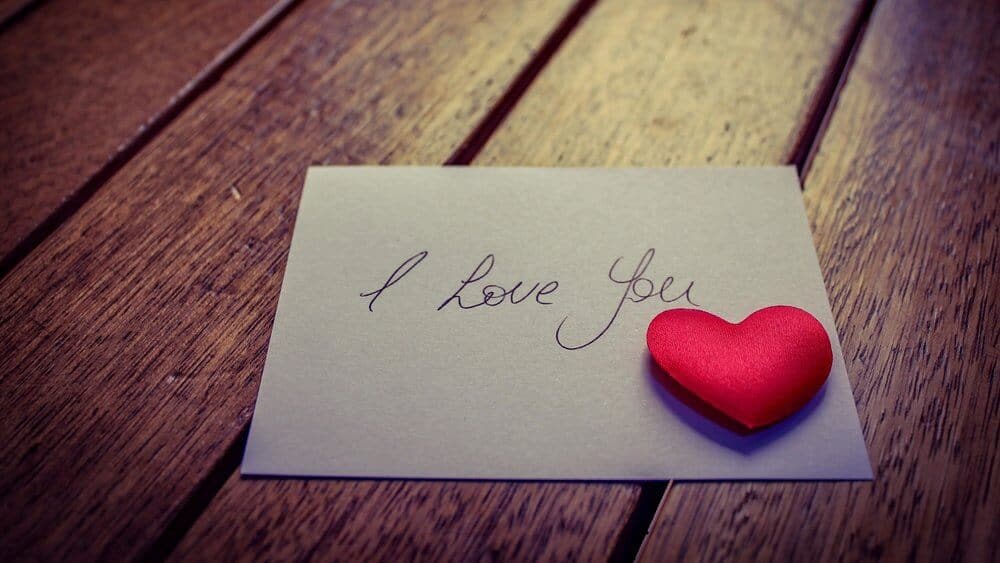
Emotive Language: Where students are trying to convince the reader to take a course of action, the use of emotive language can often be a powerful tool. Students can use either positive or negative colored words to create the desired response in the reader.
Facts and Figures: Another way to persuade and convince is to employ facts and figures to support the points made in the letter.
FORMAL LETTER STUDENT EXAMPLES

How to write an informal letter
Common features of informal letters:.
There are far fewer rules to follow when writing an informal letter, but there are still some practical guidelines to follow that will prove helpful for students engaged in writing informally.
As with any piece of writing, it is important to consider who the audience is and the reason for writing in the first place. In particular, this will help decide the tone and the language register. The more intimate the relationship, the more informal the language can be.
Though the letter will be informal, it will still have a purpose. Information should still be organized into paragraphs, as would be done with a formal, more ‘official’ letter. Students sometimes struggle with this aspect, as they often conflate ‘informal’ with ‘disorganized.’ Making them plan their informal letter before writing can help ensure it is sufficiently organized.
HOW TO START AN INFORMAL LETTER
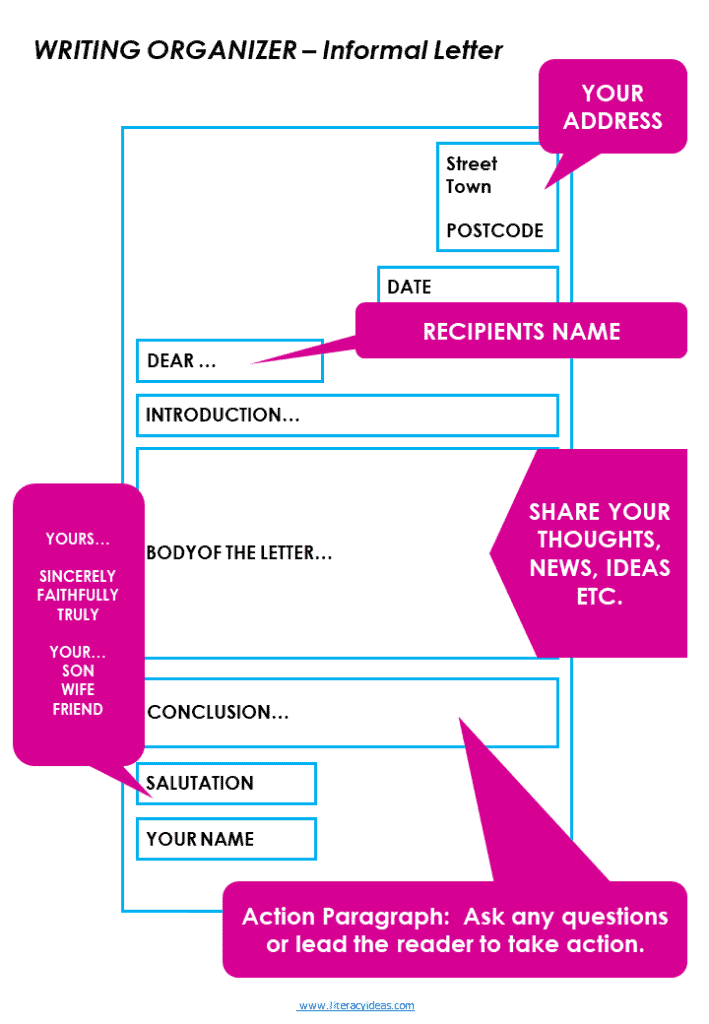
Informal letters will start with a greeting appropriate to how close the relationship is. For acquaintances, this may be ‘Dear Tom,’ (using the first name instead of the surname) to a very informal ‘Hi Jane,’. Don’t forget the comma after the name!
After the greeting, a general opening sentence should follow. Usually, this will be something like a ‘How are you?’ or a ‘How have you been?’. If the recipient is married or has kids, you may wish to ask how their spouse or children are.
Next, students should state the reason for writing. The language should be open and friendly in tone and, in contrast to the formal letter, colloquial language, idiomatic expressions, and contractions are perfectly okay and even desirable.
Just as the opening salutation to an informal letter is much more relaxed, so too will the closing salutation. There are many possibilities for the students to choose here, and their decision will depend on who they are writing to and their personal preferences. Some examples of possible closings include ‘Love’, ‘Best regards’, ‘All the best’, and ‘Thanks’.
INFORMAL LETTER STUDENT EXAMPLES

Teaching Resources
Use our resources and tools to improve your student’s writing skills through proven teaching strategies.
PRACTICE LETTER WRITING WITH THESE ACTIVITIES FOR STUDENTS
The most effective way for students to internalize all the features of letter writing, formal or informal, is to gain experience by writing various letters for differing purposes. The following activities offer some suggestions for students to get practising today:
1. FICTION AS A SPRINGBOARD
Have students write as if they were a character from a piece of fiction you have been reading in class. Choosing a dramatic point in the plot , ask students to imagine they are one of the characters writing a letter to another character in the story. This writer may be either formal or informal, depending on the scenario presented. This will give students realistic letter-writing practice while also getting them to engage closely with the text and respond imaginatively to its themes.
2. THE AGONY AUNT
Either offer a range of possible life predicaments or cut out the questions from the ‘agony aunt’ page of a local newspaper. Students must write back offering advice in response to the predicaments expressed in the question or predicament. The response should be written in full letter format. This activity also lends itself to several variations. The response may be written to a close friend, for example, or written from the perspective of a professional agony aunt employing a more formal tone and presentation.
3. A LETTER OF COMPLAINT
Have students think of their favorite candy bar or clothing item. Encourage them to imagine they have bought this product lately and found it to be substandard. Students must write a formal letter of complaint to the manufacturer outlining their complaint and recommending a course of action to satisfactorily resolve that complaint. They must use all the features of a formal letter as outlined above.
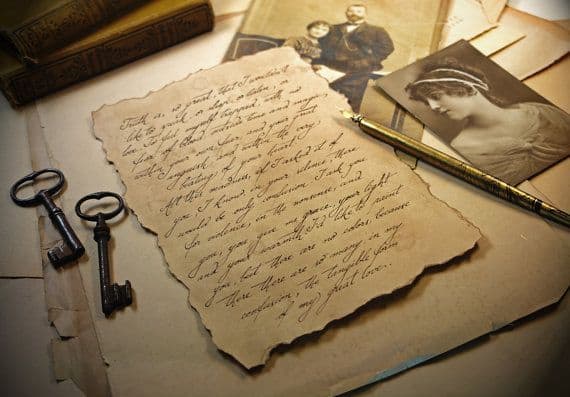
HOW TO MAKE YOUR HANDWRITTEN LETTERS LOOK OLD AND AUTHENTIC.
- Write in pencil or a calligraphy pen,
- screw them up tightly and carefully unfold and flatten.
- Lightly dab coffee stains over the paper to make it look aged.
- Carefully singe or burn the edges of your paper.
- Add some sepia-filtered photos for effect.
SIGNING-OFF
As students become more confident in their understanding of letter-writing formats, encourage them to exchange letters with each other for peer assessment. You may wish to provide them with a checklist of features to look for while reading over their partner’s work.
Letter-writing can also be a great way to partner up with schools overseas; often, children studying English as a second language will be delighted to receive letters from (and write to) students in English-speaking countries. And though email increasingly encroaches on the traditional territory of the letter, many of the skills garnered in the practice of letter writing are transferable to the modern manifestation. There is ample opportunity here to link letter-writing learning with approaches to writing emails too.
Letter-writing can provide a focus for a wide range of learning objectives while also teaching students valuable practical skills that will serve them well beyond their school years, both in their personal and work lives. And who knows, perhaps in years to come, one of the letters your student writes in your class may become a treasured keepsake in someone’s bedside drawer.
LETTER WRITING GRAPHIC ORGANIZERS (TEMPLATES)
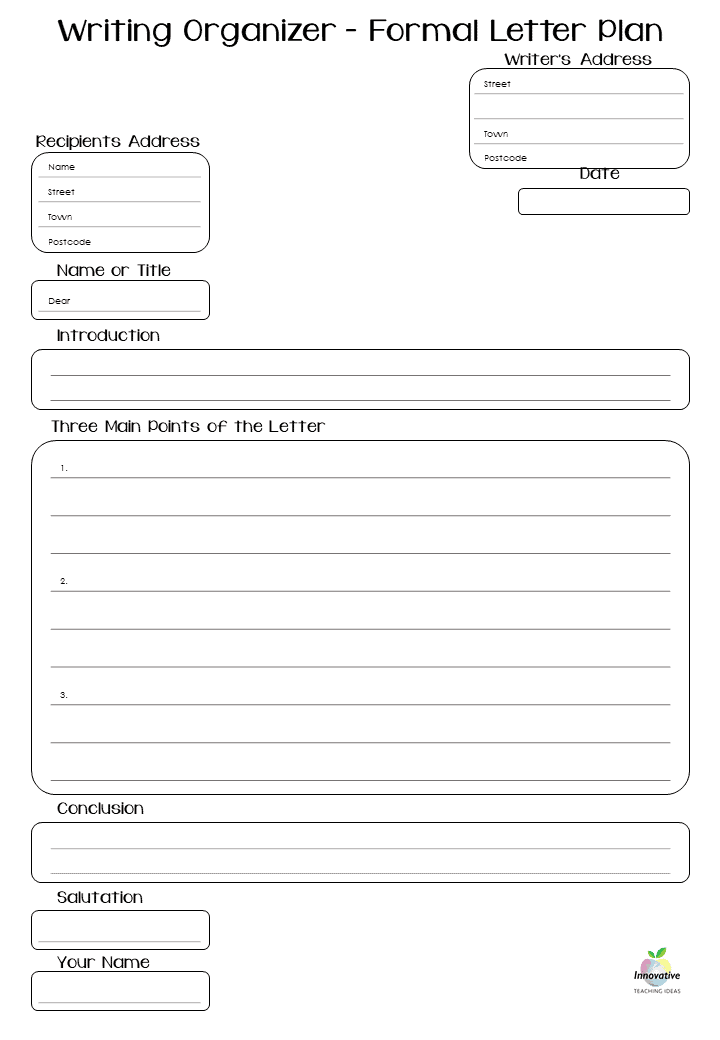
WRITING CHECKLIST & RUBRIC BUNDLE FOR ALL TEXT TYPES

⭐⭐⭐⭐⭐ (92 Reviews)
HOW TO WRITE A FORMAL LETTER TUTORIAL VIDEO
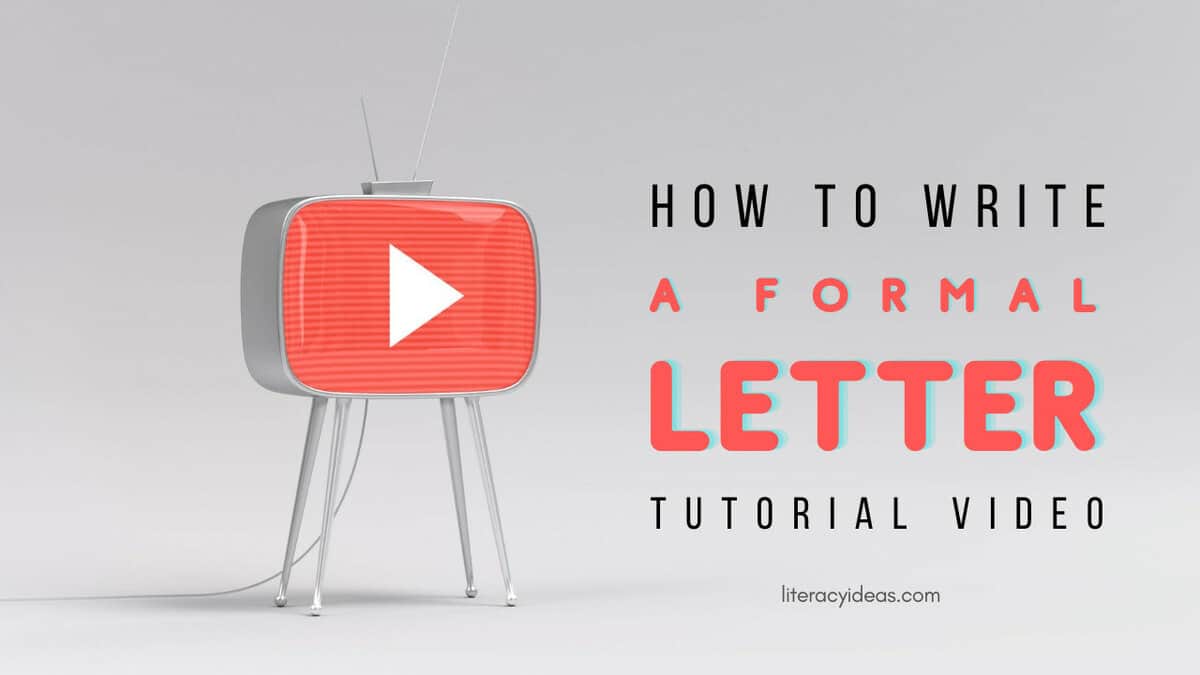
OTHER GREAT ARTICLES RELATED TO LETTER WRITING
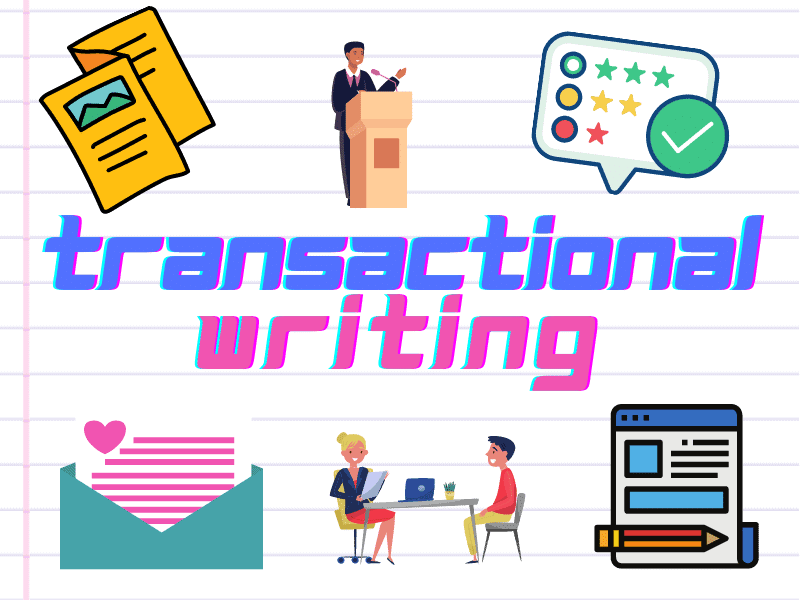
Transactional Writing
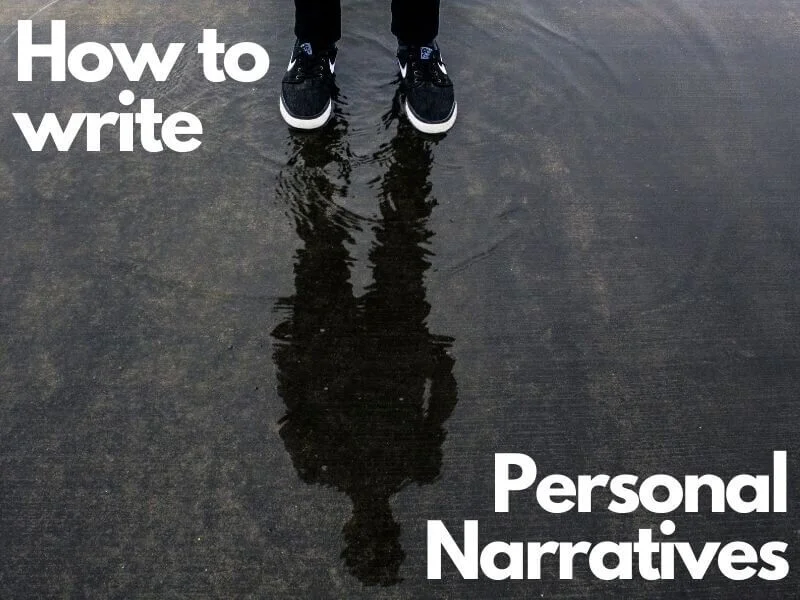
Personal Narrative Writing Guide
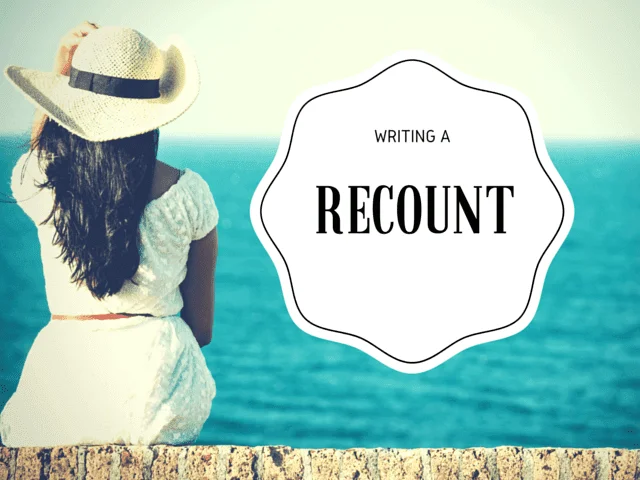
How to Write a Recount Text (And Improve your Writing Skills)
Content for this page has been written by Shane Mac Donnchaidh. A former principal of an international school and university English lecturer with 15 years of teaching and administration experience. Editing and support content has been provided by the literacyideas team.

How to Write an Essay
Use the links below to jump directly to any section of this guide:
Essay Writing Fundamentals
How to prepare to write an essay, how to edit an essay, how to share and publish your essays, how to get essay writing help, how to find essay writing inspiration, resources for teaching essay writing.
Essays, short prose compositions on a particular theme or topic, are the bread and butter of academic life. You write them in class, for homework, and on standardized tests to show what you know. Unlike other kinds of academic writing (like the research paper) and creative writing (like short stories and poems), essays allow you to develop your original thoughts on a prompt or question. Essays come in many varieties: they can be expository (fleshing out an idea or claim), descriptive, (explaining a person, place, or thing), narrative (relating a personal experience), or persuasive (attempting to win over a reader). This guide is a collection of dozens of links about academic essay writing that we have researched, categorized, and annotated in order to help you improve your essay writing.
Essays are different from other forms of writing; in turn, there are different kinds of essays. This section contains general resources for getting to know the essay and its variants. These resources introduce and define the essay as a genre, and will teach you what to expect from essay-based assessments.
Purdue OWL Online Writing Lab
One of the most trusted academic writing sites, Purdue OWL provides a concise introduction to the four most common types of academic essays.
"The Essay: History and Definition" (ThoughtCo)
This snappy article from ThoughtCo talks about the origins of the essay and different kinds of essays you might be asked to write.
"What Is An Essay?" Video Lecture (Coursera)
The University of California at Irvine's free video lecture, available on Coursera, tells you everything you need to know about the essay.
Wikipedia Article on the "Essay"
Wikipedia's article on the essay is comprehensive, providing both English-language and global perspectives on the essay form. Learn about the essay's history, forms, and styles.
"Understanding College and Academic Writing" (Aims Online Writing Lab)
This list of common academic writing assignments (including types of essay prompts) will help you know what to expect from essay-based assessments.
Before you start writing your essay, you need to figure out who you're writing for (audience), what you're writing about (topic/theme), and what you're going to say (argument and thesis). This section contains links to handouts, chapters, videos and more to help you prepare to write an essay.
How to Identify Your Audience
"Audience" (Univ. of North Carolina Writing Center)
This handout provides questions you can ask yourself to determine the audience for an academic writing assignment. It also suggests strategies for fitting your paper to your intended audience.
"Purpose, Audience, Tone, and Content" (Univ. of Minnesota Libraries)
This extensive book chapter from Writing for Success , available online through Minnesota Libraries Publishing, is followed by exercises to try out your new pre-writing skills.
"Determining Audience" (Aims Online Writing Lab)
This guide from a community college's writing center shows you how to know your audience, and how to incorporate that knowledge in your thesis statement.
"Know Your Audience" ( Paper Rater Blog)
This short blog post uses examples to show how implied audiences for essays differ. It reminds you to think of your instructor as an observer, who will know only the information you pass along.
How to Choose a Theme or Topic
"Research Tutorial: Developing Your Topic" (YouTube)
Take a look at this short video tutorial from the University of North Carolina at Chapel Hill to understand the basics of developing a writing topic.
"How to Choose a Paper Topic" (WikiHow)
This simple, step-by-step guide (with pictures!) walks you through choosing a paper topic. It starts with a detailed description of brainstorming and ends with strategies to refine your broad topic.
"How to Read an Assignment: Moving From Assignment to Topic" (Harvard College Writing Center)
Did your teacher give you a prompt or other instructions? This guide helps you understand the relationship between an essay assignment and your essay's topic.
"Guidelines for Choosing a Topic" (CliffsNotes)
This study guide from CliffsNotes both discusses how to choose a topic and makes a useful distinction between "topic" and "thesis."
How to Come Up with an Argument
"Argument" (Univ. of North Carolina Writing Center)
Not sure what "argument" means in the context of academic writing? This page from the University of North Carolina is a good place to start.
"The Essay Guide: Finding an Argument" (Study Hub)
This handout explains why it's important to have an argument when beginning your essay, and provides tools to help you choose a viable argument.
"Writing a Thesis and Making an Argument" (University of Iowa)
This page from the University of Iowa's Writing Center contains exercises through which you can develop and refine your argument and thesis statement.
"Developing a Thesis" (Harvard College Writing Center)
This page from Harvard's Writing Center collates some helpful dos and don'ts of argumentative writing, from steps in constructing a thesis to avoiding vague and confrontational thesis statements.
"Suggestions for Developing Argumentative Essays" (Berkeley Student Learning Center)
This page offers concrete suggestions for each stage of the essay writing process, from topic selection to drafting and editing.
How to Outline your Essay
"Outlines" (Univ. of North Carolina at Chapel Hill via YouTube)
This short video tutorial from the University of North Carolina at Chapel Hill shows how to group your ideas into paragraphs or sections to begin the outlining process.
"Essay Outline" (Univ. of Washington Tacoma)
This two-page handout by a university professor simply defines the parts of an essay and then organizes them into an example outline.
"Types of Outlines and Samples" (Purdue OWL Online Writing Lab)
Purdue OWL gives examples of diverse outline strategies on this page, including the alphanumeric, full sentence, and decimal styles.
"Outlining" (Harvard College Writing Center)
Once you have an argument, according to this handout, there are only three steps in the outline process: generalizing, ordering, and putting it all together. Then you're ready to write!
"Writing Essays" (Plymouth Univ.)
This packet, part of Plymouth University's Learning Development series, contains descriptions and diagrams relating to the outlining process.
"How to Write A Good Argumentative Essay: Logical Structure" (Criticalthinkingtutorials.com via YouTube)
This longer video tutorial gives an overview of how to structure your essay in order to support your argument or thesis. It is part of a longer course on academic writing hosted on Udemy.
Now that you've chosen and refined your topic and created an outline, use these resources to complete the writing process. Most essays contain introductions (which articulate your thesis statement), body paragraphs, and conclusions. Transitions facilitate the flow from one paragraph to the next so that support for your thesis builds throughout the essay. Sources and citations show where you got the evidence to support your thesis, which ensures that you avoid plagiarism.

How to Write an Introduction
"Introductions" (Univ. of North Carolina Writing Center)
This page identifies the role of the introduction in any successful paper, suggests strategies for writing introductions, and warns against less effective introductions.
"How to Write A Good Introduction" (Michigan State Writing Center)
Beginning with the most common missteps in writing introductions, this guide condenses the essentials of introduction composition into seven points.
"The Introductory Paragraph" (ThoughtCo)
This blog post from academic advisor and college enrollment counselor Grace Fleming focuses on ways to grab your reader's attention at the beginning of your essay.
"Introductions and Conclusions" (Univ. of Toronto)
This guide from the University of Toronto gives advice that applies to writing both introductions and conclusions, including dos and don'ts.
"How to Write Better Essays: No One Does Introductions Properly" ( The Guardian )
This news article interviews UK professors on student essay writing; they point to introductions as the area that needs the most improvement.
How to Write a Thesis Statement
"Writing an Effective Thesis Statement" (YouTube)
This short, simple video tutorial from a college composition instructor at Tulsa Community College explains what a thesis statement is and what it does.
"Thesis Statement: Four Steps to a Great Essay" (YouTube)
This fantastic tutorial walks you through drafting a thesis, using an essay prompt on Nathaniel Hawthorne's The Scarlet Letter as an example.
"How to Write a Thesis Statement" (WikiHow)
This step-by-step guide (with pictures!) walks you through coming up with, writing, and editing a thesis statement. It invites you think of your statement as a "working thesis" that can change.
"How to Write a Thesis Statement" (Univ. of Indiana Bloomington)
Ask yourself the questions on this page, part of Indiana Bloomington's Writing Tutorial Services, when you're writing and refining your thesis statement.
"Writing Tips: Thesis Statements" (Univ. of Illinois Center for Writing Studies)
This page gives plentiful examples of good to great thesis statements, and offers questions to ask yourself when formulating a thesis statement.
How to Write Body Paragraphs
"Body Paragraph" (Brightstorm)
This module of a free online course introduces you to the components of a body paragraph. These include the topic sentence, information, evidence, and analysis.
"Strong Body Paragraphs" (Washington Univ.)
This handout from Washington's Writing and Research Center offers in-depth descriptions of the parts of a successful body paragraph.
"Guide to Paragraph Structure" (Deakin Univ.)
This handout is notable for color-coding example body paragraphs to help you identify the functions various sentences perform.
"Writing Body Paragraphs" (Univ. of Minnesota Libraries)
The exercises in this section of Writing for Success will help you practice writing good body paragraphs. It includes guidance on selecting primary support for your thesis.
"The Writing Process—Body Paragraphs" (Aims Online Writing Lab)
The information and exercises on this page will familiarize you with outlining and writing body paragraphs, and includes links to more information on topic sentences and transitions.
"The Five-Paragraph Essay" (ThoughtCo)
This blog post discusses body paragraphs in the context of one of the most common academic essay types in secondary schools.
How to Use Transitions
"Transitions" (Univ. of North Carolina Writing Center)
This page from the University of North Carolina at Chapel Hill explains what a transition is, and how to know if you need to improve your transitions.
"Using Transitions Effectively" (Washington Univ.)
This handout defines transitions, offers tips for using them, and contains a useful list of common transitional words and phrases grouped by function.
"Transitions" (Aims Online Writing Lab)
This page compares paragraphs without transitions to paragraphs with transitions, and in doing so shows how important these connective words and phrases are.
"Transitions in Academic Essays" (Scribbr)
This page lists four techniques that will help you make sure your reader follows your train of thought, including grouping similar information and using transition words.
"Transitions" (El Paso Community College)
This handout shows example transitions within paragraphs for context, and explains how transitions improve your essay's flow and voice.
"Make Your Paragraphs Flow to Improve Writing" (ThoughtCo)
This blog post, another from academic advisor and college enrollment counselor Grace Fleming, talks about transitions and other strategies to improve your essay's overall flow.
"Transition Words" (smartwords.org)
This handy word bank will help you find transition words when you're feeling stuck. It's grouped by the transition's function, whether that is to show agreement, opposition, condition, or consequence.
How to Write a Conclusion
"Parts of An Essay: Conclusions" (Brightstorm)
This module of a free online course explains how to conclude an academic essay. It suggests thinking about the "3Rs": return to hook, restate your thesis, and relate to the reader.
"Essay Conclusions" (Univ. of Maryland University College)
This overview of the academic essay conclusion contains helpful examples and links to further resources for writing good conclusions.
"How to End An Essay" (WikiHow)
This step-by-step guide (with pictures!) by an English Ph.D. walks you through writing a conclusion, from brainstorming to ending with a flourish.
"Ending the Essay: Conclusions" (Harvard College Writing Center)
This page collates useful strategies for writing an effective conclusion, and reminds you to "close the discussion without closing it off" to further conversation.
How to Include Sources and Citations
"Research and Citation Resources" (Purdue OWL Online Writing Lab)
Purdue OWL streamlines information about the three most common referencing styles (MLA, Chicago, and APA) and provides examples of how to cite different resources in each system.
EasyBib: Free Bibliography Generator
This online tool allows you to input information about your source and automatically generate citations in any style. Be sure to select your resource type before clicking the "cite it" button.
CitationMachine
Like EasyBib, this online tool allows you to input information about your source and automatically generate citations in any style.
Modern Language Association Handbook (MLA)
Here, you'll find the definitive and up-to-date record of MLA referencing rules. Order through the link above, or check to see if your library has a copy.
Chicago Manual of Style
Here, you'll find the definitive and up-to-date record of Chicago referencing rules. You can take a look at the table of contents, then choose to subscribe or start a free trial.
How to Avoid Plagiarism
"What is Plagiarism?" (plagiarism.org)
This nonprofit website contains numerous resources for identifying and avoiding plagiarism, and reminds you that even common activities like copying images from another website to your own site may constitute plagiarism.
"Plagiarism" (University of Oxford)
This interactive page from the University of Oxford helps you check for plagiarism in your work, making it clear how to avoid citing another person's work without full acknowledgement.
"Avoiding Plagiarism" (MIT Comparative Media Studies)
This quick guide explains what plagiarism is, what its consequences are, and how to avoid it. It starts by defining three words—quotation, paraphrase, and summary—that all constitute citation.
"Harvard Guide to Using Sources" (Harvard Extension School)
This comprehensive website from Harvard brings together articles, videos, and handouts about referencing, citation, and plagiarism.
Grammarly contains tons of helpful grammar and writing resources, including a free tool to automatically scan your essay to check for close affinities to published work.
Noplag is another popular online tool that automatically scans your essay to check for signs of plagiarism. Simply copy and paste your essay into the box and click "start checking."
Once you've written your essay, you'll want to edit (improve content), proofread (check for spelling and grammar mistakes), and finalize your work until you're ready to hand it in. This section brings together tips and resources for navigating the editing process.
"Writing a First Draft" (Academic Help)
This is an introduction to the drafting process from the site Academic Help, with tips for getting your ideas on paper before editing begins.
"Editing and Proofreading" (Univ. of North Carolina Writing Center)
This page provides general strategies for revising your writing. They've intentionally left seven errors in the handout, to give you practice in spotting them.
"How to Proofread Effectively" (ThoughtCo)
This article from ThoughtCo, along with those linked at the bottom, help describe common mistakes to check for when proofreading.
"7 Simple Edits That Make Your Writing 100% More Powerful" (SmartBlogger)
This blog post emphasizes the importance of powerful, concise language, and reminds you that even your personal writing heroes create clunky first drafts.
"Editing Tips for Effective Writing" (Univ. of Pennsylvania)
On this page from Penn's International Relations department, you'll find tips for effective prose, errors to watch out for, and reminders about formatting.
"Editing the Essay" (Harvard College Writing Center)
This article, the first of two parts, gives you applicable strategies for the editing process. It suggests reading your essay aloud, removing any jargon, and being unafraid to remove even "dazzling" sentences that don't belong.
"Guide to Editing and Proofreading" (Oxford Learning Institute)
This handout from Oxford covers the basics of editing and proofreading, and reminds you that neither task should be rushed.
In addition to plagiarism-checkers, Grammarly has a plug-in for your web browser that checks your writing for common mistakes.
After you've prepared, written, and edited your essay, you might want to share it outside the classroom. This section alerts you to print and web opportunities to share your essays with the wider world, from online writing communities and blogs to published journals geared toward young writers.
Sharing Your Essays Online
Go Teen Writers
Go Teen Writers is an online community for writers aged 13 - 19. It was founded by Stephanie Morrill, an author of contemporary young adult novels.
Tumblr is a blogging website where you can share your writing and interact with other writers online. It's easy to add photos, links, audio, and video components.
Writersky provides an online platform for publishing and reading other youth writers' work. Its current content is mostly devoted to fiction.
Publishing Your Essays Online
This teen literary journal publishes in print, on the web, and (more frequently), on a blog. It is committed to ensuring that "teens see their authentic experience reflected on its pages."
The Matador Review
This youth writing platform celebrates "alternative," unconventional writing. The link above will take you directly to the site's "submissions" page.
Teen Ink has a website, monthly newsprint magazine, and quarterly poetry magazine promoting the work of young writers.
The largest online reading platform, Wattpad enables you to publish your work and read others' work. Its inline commenting feature allows you to share thoughts as you read along.
Publishing Your Essays in Print
Canvas Teen Literary Journal
This quarterly literary magazine is published for young writers by young writers. They accept many kinds of writing, including essays.
The Claremont Review
This biannual international magazine, first published in 1992, publishes poetry, essays, and short stories from writers aged 13 - 19.
Skipping Stones
This young writers magazine, founded in 1988, celebrates themes relating to ecological and cultural diversity. It publishes poems, photos, articles, and stories.
The Telling Room
This nonprofit writing center based in Maine publishes children's work on their website and in book form. The link above directs you to the site's submissions page.
Essay Contests
Scholastic Arts and Writing Awards
This prestigious international writing contest for students in grades 7 - 12 has been committed to "supporting the future of creativity since 1923."
Society of Professional Journalists High School Essay Contest
An annual essay contest on the theme of journalism and media, the Society of Professional Journalists High School Essay Contest awards scholarships up to $1,000.
National YoungArts Foundation
Here, you'll find information on a government-sponsored writing competition for writers aged 15 - 18. The foundation welcomes submissions of creative nonfiction, novels, scripts, poetry, short story and spoken word.
Signet Classics Student Scholarship Essay Contest
With prompts on a different literary work each year, this competition from Signet Classics awards college scholarships up to $1,000.
"The Ultimate Guide to High School Essay Contests" (CollegeVine)
See this handy guide from CollegeVine for a list of more competitions you can enter with your academic essay, from the National Council of Teachers of English Achievement Awards to the National High School Essay Contest by the U.S. Institute of Peace.
Whether you're struggling to write academic essays or you think you're a pro, there are workshops and online tools that can help you become an even better writer. Even the most seasoned writers encounter writer's block, so be proactive and look through our curated list of resources to combat this common frustration.
Online Essay-writing Classes and Workshops
"Getting Started with Essay Writing" (Coursera)
Coursera offers lots of free, high-quality online classes taught by college professors. Here's one example, taught by instructors from the University of California Irvine.
"Writing and English" (Brightstorm)
Brightstorm's free video lectures are easy to navigate by topic. This unit on the parts of an essay features content on the essay hook, thesis, supporting evidence, and more.
"How to Write an Essay" (EdX)
EdX is another open online university course website with several two- to five-week courses on the essay. This one is geared toward English language learners.
Writer's Digest University
This renowned writers' website offers online workshops and interactive tutorials. The courses offered cover everything from how to get started through how to get published.
Writing.com
Signing up for this online writer's community gives you access to helpful resources as well as an international community of writers.
How to Overcome Writer's Block
"Symptoms and Cures for Writer's Block" (Purdue OWL)
Purdue OWL offers a list of signs you might have writer's block, along with ways to overcome it. Consider trying out some "invention strategies" or ways to curb writing anxiety.
"Overcoming Writer's Block: Three Tips" ( The Guardian )
These tips, geared toward academic writing specifically, are practical and effective. The authors advocate setting realistic goals, creating dedicated writing time, and participating in social writing.
"Writing Tips: Strategies for Overcoming Writer's Block" (Univ. of Illinois)
This page from the University of Illinois at Urbana-Champaign's Center for Writing Studies acquaints you with strategies that do and do not work to overcome writer's block.
"Writer's Block" (Univ. of Toronto)
Ask yourself the questions on this page; if the answer is "yes," try out some of the article's strategies. Each question is accompanied by at least two possible solutions.
If you have essays to write but are short on ideas, this section's links to prompts, example student essays, and celebrated essays by professional writers might help. You'll find writing prompts from a variety of sources, student essays to inspire you, and a number of essay writing collections.
Essay Writing Prompts
"50 Argumentative Essay Topics" (ThoughtCo)
Take a look at this list and the others ThoughtCo has curated for different kinds of essays. As the author notes, "a number of these topics are controversial and that's the point."
"401 Prompts for Argumentative Writing" ( New York Times )
This list (and the linked lists to persuasive and narrative writing prompts), besides being impressive in length, is put together by actual high school English teachers.
"SAT Sample Essay Prompts" (College Board)
If you're a student in the U.S., your classroom essay prompts are likely modeled on the prompts in U.S. college entrance exams. Take a look at these official examples from the SAT.
"Popular College Application Essay Topics" (Princeton Review)
This page from the Princeton Review dissects recent Common Application essay topics and discusses strategies for answering them.
Example Student Essays
"501 Writing Prompts" (DePaul Univ.)
This nearly 200-page packet, compiled by the LearningExpress Skill Builder in Focus Writing Team, is stuffed with writing prompts, example essays, and commentary.
"Topics in English" (Kibin)
Kibin is a for-pay essay help website, but its example essays (organized by topic) are available for free. You'll find essays on everything from A Christmas Carol to perseverance.
"Student Writing Models" (Thoughtful Learning)
Thoughtful Learning, a website that offers a variety of teaching materials, provides sample student essays on various topics and organizes them by grade level.
"Five-Paragraph Essay" (ThoughtCo)
In this blog post by a former professor of English and rhetoric, ThoughtCo brings together examples of five-paragraph essays and commentary on the form.
The Best Essay Writing Collections
The Best American Essays of the Century by Joyce Carol Oates (Amazon)
This collection of American essays spanning the twentieth century was compiled by award winning author and Princeton professor Joyce Carol Oates.
The Best American Essays 2017 by Leslie Jamison (Amazon)
Leslie Jamison, the celebrated author of essay collection The Empathy Exams , collects recent, high-profile essays into a single volume.
The Art of the Personal Essay by Phillip Lopate (Amazon)
Documentary writer Phillip Lopate curates this historical overview of the personal essay's development, from the classical era to the present.
The White Album by Joan Didion (Amazon)
This seminal essay collection was authored by one of the most acclaimed personal essayists of all time, American journalist Joan Didion.
Consider the Lobster by David Foster Wallace (Amazon)
Read this famous essay collection by David Foster Wallace, who is known for his experimentation with the essay form. He pushed the boundaries of personal essay, reportage, and political polemic.
"50 Successful Harvard Application Essays" (Staff of the The Harvard Crimson )
If you're looking for examples of exceptional college application essays, this volume from Harvard's daily student newspaper is one of the best collections on the market.
Are you an instructor looking for the best resources for teaching essay writing? This section contains resources for developing in-class activities and student homework assignments. You'll find content from both well-known university writing centers and online writing labs.
Essay Writing Classroom Activities for Students
"In-class Writing Exercises" (Univ. of North Carolina Writing Center)
This page lists exercises related to brainstorming, organizing, drafting, and revising. It also contains suggestions for how to implement the suggested exercises.
"Teaching with Writing" (Univ. of Minnesota Center for Writing)
Instructions and encouragement for using "freewriting," one-minute papers, logbooks, and other write-to-learn activities in the classroom can be found here.
"Writing Worksheets" (Berkeley Student Learning Center)
Berkeley offers this bank of writing worksheets to use in class. They are nested under headings for "Prewriting," "Revision," "Research Papers" and more.
"Using Sources and Avoiding Plagiarism" (DePaul University)
Use these activities and worksheets from DePaul's Teaching Commons when instructing students on proper academic citation practices.
Essay Writing Homework Activities for Students
"Grammar and Punctuation Exercises" (Aims Online Writing Lab)
These five interactive online activities allow students to practice editing and proofreading. They'll hone their skills in correcting comma splices and run-ons, identifying fragments, using correct pronoun agreement, and comma usage.
"Student Interactives" (Read Write Think)
Read Write Think hosts interactive tools, games, and videos for developing writing skills. They can practice organizing and summarizing, writing poetry, and developing lines of inquiry and analysis.
This free website offers writing and grammar activities for all grade levels. The lessons are designed to be used both for large classes and smaller groups.
"Writing Activities and Lessons for Every Grade" (Education World)
Education World's page on writing activities and lessons links you to more free, online resources for learning how to "W.R.I.T.E.": write, revise, inform, think, and edit.
- PDFs for all 136 Lit Terms we cover
- Downloads of 1916 LitCharts Lit Guides
- Teacher Editions for every Lit Guide
- Explanations and citation info for 40,380 quotes across 1916 books
- Downloadable (PDF) line-by-line translations of every Shakespeare play
Need something? Request a new guide .
How can we improve? Share feedback .
LitCharts is hiring!


- SUGGESTED TOPICS
- The Magazine
- Newsletters
- Managing Yourself
- Managing Teams
- Work-life Balance
- The Big Idea
- Data & Visuals
- Reading Lists
- Case Selections
- HBR Learning
- Topic Feeds
- Account Settings
- Email Preferences
How to Write a Personal Essay for Your College Application

What does it take to land in the “accept” (instead of “reject”) pile?
How can you write an essay that helps advance you in the eyes of the admissions officers and makes a real impression? Here are some tips to get you started.
- Start early. Do not leave it until the last minute. Give yourself time when you don’t have other homework or extracurriculars hanging over your head to work on the essay.
- Keep the focus narrow. Your essay does not have to cover a massive, earth-shattering event. Some people in their teens haven’t experienced a major life event. Some people have. Either way, it’s okay.
- Be yourself. Whether writing about a painful experience or a more simple experience, use the narrative to be vulnerable and honest about who you are. Use words you would normally use. Trust your voice and the fact that your story is interesting enough in that no one else has lived it.
- Be creative. “Show, don’t tell,” and that applies here — to an extent. The best essays typically do both. You can help your reader see and feel what you are describing by using some figurative language throughout your piece.
- Make a point. As you finish your final body paragraphs ask yourself “So what?” This will help you hone in on how to end your essay in a way that elevates it into a story about an insight or discovery you made about yourself, rather than just being about an experience you had.
Where your work meets your life. See more from Ascend here .
We’ve all heard about the dreaded “college essay,” the bane of every high school senior’s existence. This daunting element of the college application is something that can create angst for even the most accomplished students.
- AA Amy Allen is a writer, educator, and lifelong learner. Her freelance writing business, All of the Write Words , focuses on providing high school students with one-on-one feedback to guide them through the college application process and with crafting a thoughtful personal essay. A dedicated poet, Amy’s work has also been published in several journals including Pine Row Press , Months to Years, and Atlanta Review .
Partner Center
Tips for Reading an Assignment Prompt
Asking analytical questions, introductions, what do introductions across the disciplines have in common, anatomy of a body paragraph, transitions, tips for organizing your essay, counterargument, conclusions.
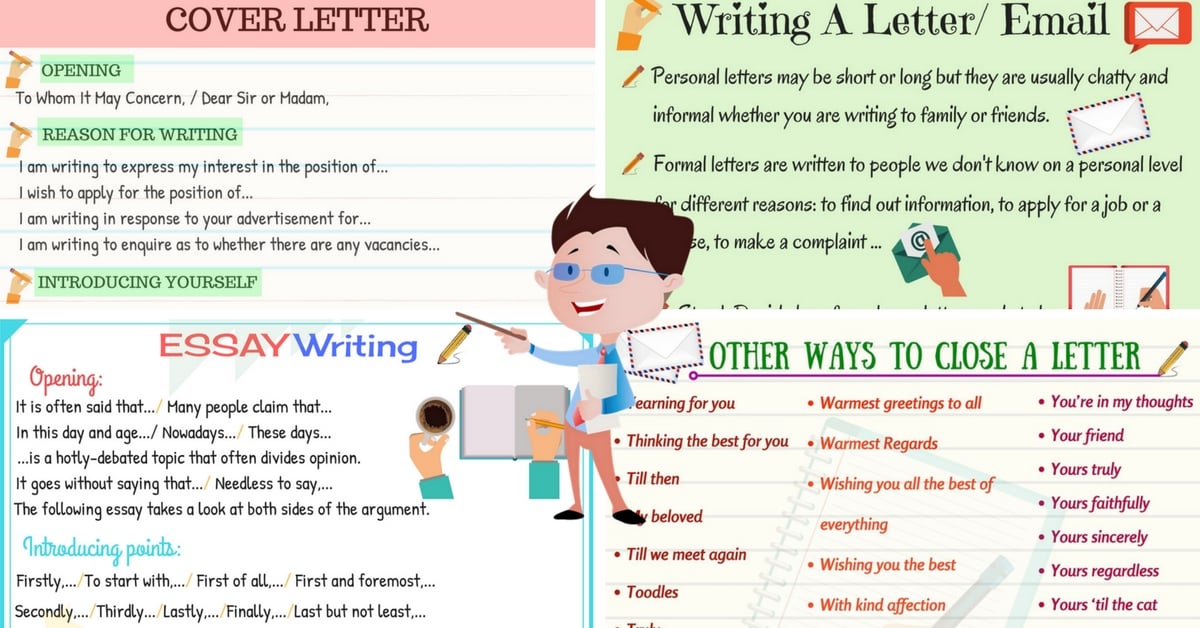
How to Write a Letter or an Essay in English | Useful Tips
How to write a letter or how to write an essay in English? Useful tips for writing letters, essays in English.
Table of Contents
How to Write a Letter
How to write a cover letter.
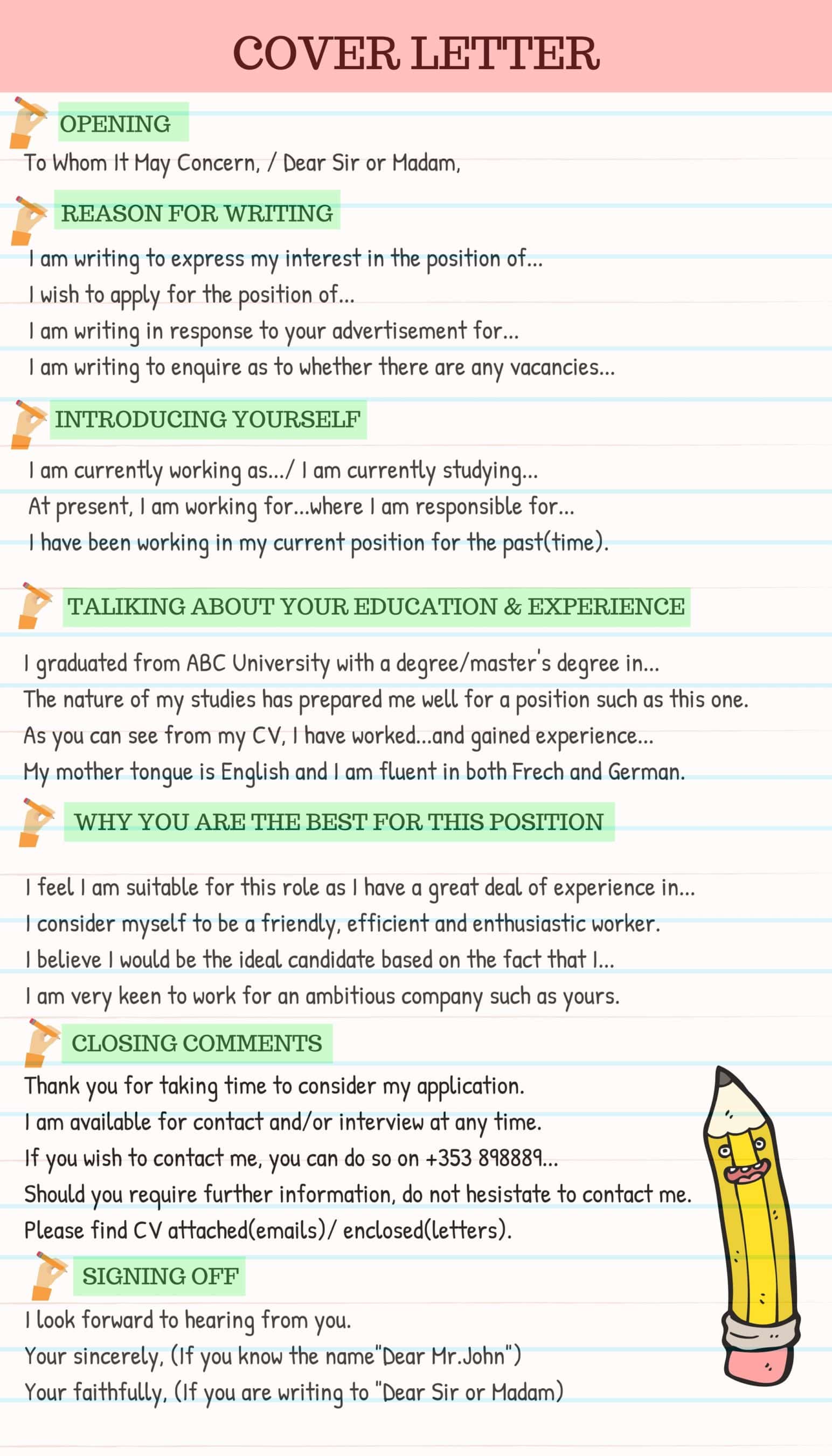
How to Write Informal Letters
How to end a letter in english.
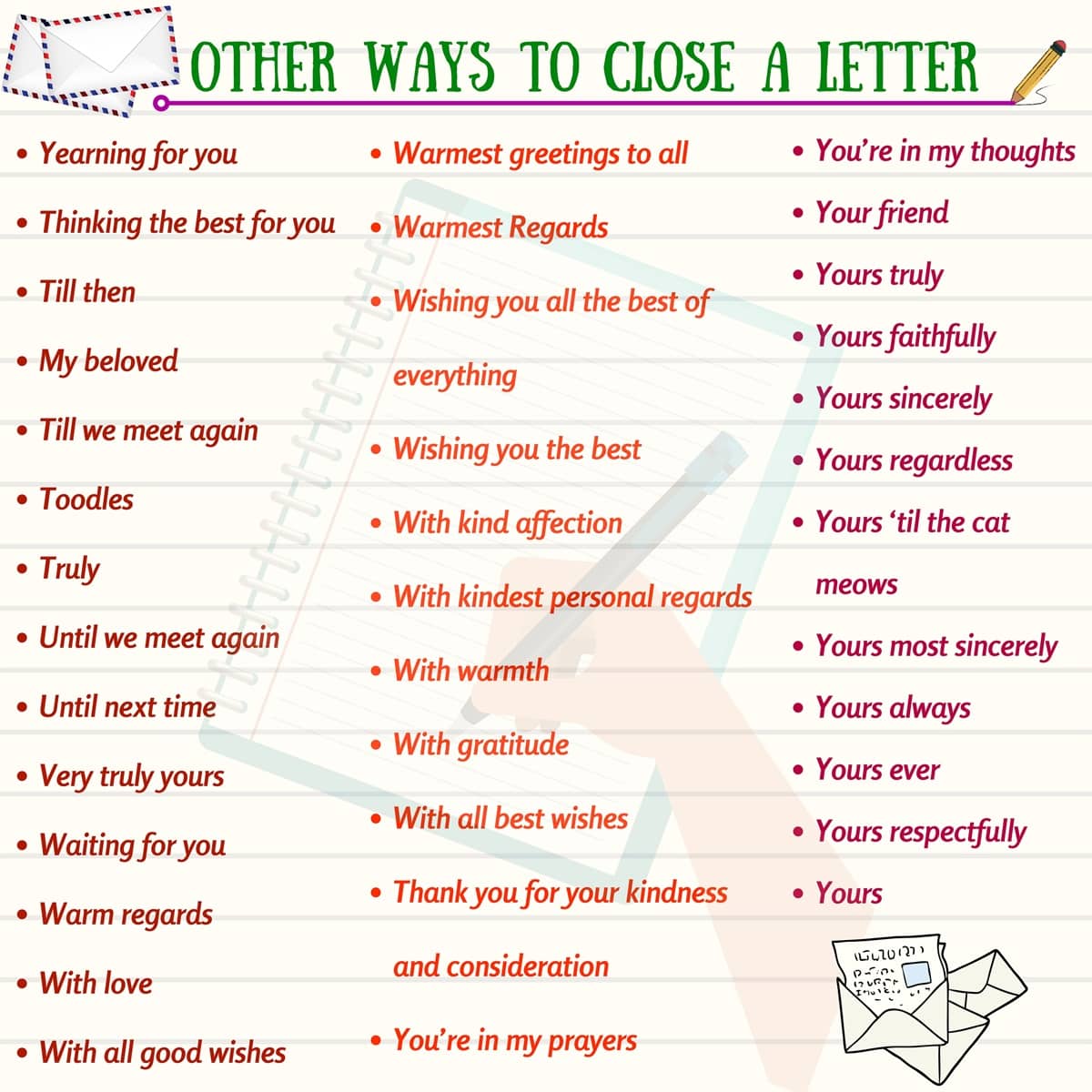
Useful Words and Phrases for Writing Formal Letters
Writing a letter or an email.

How to Write a Great Essay Quickly

Related Posts
![English Grammar Practice Test [Beginner 2] English Grammar Practice Test [Beginner 2]](https://www.fluentland.com/wp-content/uploads/2016/08/English-Grammar-Practice-Test-Beginner-2.jpg)
English Grammar Practice Test [Beginner 2]
![English Listening Practice 1 [Beginner-Intermediate] VOA Learning English English Listening Practice 1 [Beginner-Intermediate] VOA Learning English](https://www.fluentland.com/wp-content/uploads/2016/03/Untitled-design.png)
English Listening Practice 1 [Beginner-Intermediate] VOA Learning English
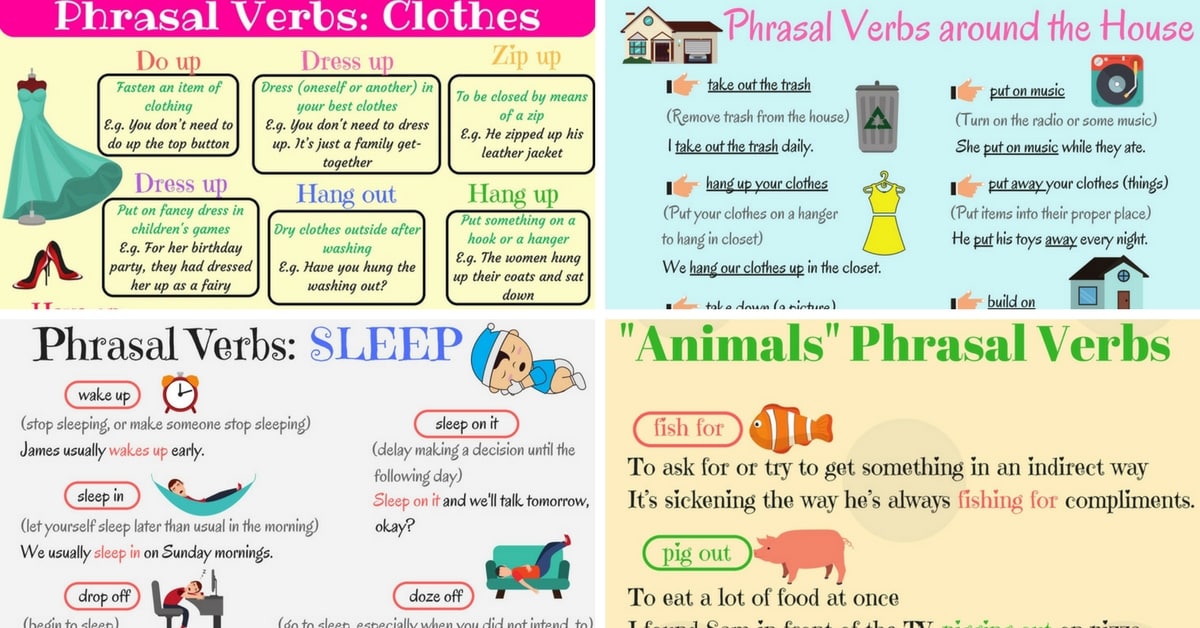
English Phrasal Verbs for Communication with Useful Examples
Letter/Email – examples & model answers | B2 First (FCE)
An email/a letter is written in response to the situation outlined in the question. Letters and emails in the B2 First Writing paper will require a response which is consistently appropriate in register and tone for the specified target reader.
Candidates can expect to be asked to write letters or emails to, for example, an English-speaking friend or colleague, a potential employer, a college principal or a magazine editor.
FCE, CAE, CPE
Practice, write & improve, fce email example: touring holiday.
You have received this email from your English-speaking friend David.
Write your email .
FCE Email: Example Answer (Grade: 4)
Dear David,
I’m glad your friends are visiting my area soon for a week’s touring holiday. I have many ideas what I can show them and tell about.
In my opinion the best way to travel around will be by bike because of small distances between the places and views are amazing.
My area includes also beautiful Baltic Sea which many tourist visit especially in summer. Your friends could sunbath or swim if they would like but the water is quite cold in this season. Beautiful sightseeing of sunrise is the best memorise!
You wrote that they are intrested in history of my local area. That’s great! We have museum of our local history where I can go with them. Tickets are not so expensive and I can think about some discount.
What do you think about it? Would you mind send me some your ideas?
I look forward to hearing from you soon.
Best wishes, Sam
Get Your (FCE) Letter Checked!
Fce email example: swimming team.
You have received this email from your English-speaking friend, Jo.
It is good to receive news from you! I bet you are swimming like a fish. Do you remember when we were kids and we made a few races in Angelina’s pool?
I understand why you are trying to persuade them but remember that they want your best. If I were you firstly I would try to talk with your swimming coach and ask him about the possibilities of training another day. Then if the answer would have been negative I will probably try to do the same with yours future math teacher. I am sure that everyone knows the importance of practising sports while studying. So they will find a solution.
If everything goes don’t doesn’t happen as you and I expect ensure that your parents don’t get mad with your decision. They are giving their best! Put your education in front first place. Opportunities to swim you will have a lot during your life. Moreover, you can come to Barcelone and try to catch me in the pool.
Good luck, Sam
FCE Letter Example: School uniforms
This Is part of a letter from Karl, your English friend:
Write your letter .
FCE Letter: Example Answer (Grade: 4-5)
I’m writing to you about the letter which you sent me and asking my opinion about the school uniform. I believe it is one of the most important thing that we should discuss.
Nowadays, there are a few schools in which students wear a school uniform. I believe that this happening because pupils are free to wear whatever they want. Also, this means that they can express themselves.
On the other hand, school uniforms showes In which school each pupil belong to. Then, the uniforms support the way that the schools should work in our days In addition, if all pupils wear the school uniform, there will not be any pupil who will be unfashionable, and nobody will feel uncomfortable. Fashion is very popular, especially in high school, and wear fashionable clothes is the way to show off. That’s such a waste because fashion is the thing that cannot keep for long time. It Is not a good idea to flow fashion in school time.
To sum up, I believe that we should wear uniforms because in this way, them will not be any differences between pupils.
Best wishes Tom
FCE Letter Example: Letter of application
You see this advertisment in your local newspaper:
Write your letter of application.
FCE Letter: Model Answer (Grade: 5)
Dear Mr. Nick Jones,
I had been searching for a job when i discovered the advertisment in the local newpaper, in which you were offering a post at your holiday club.
I am an eighteen year-old student at King’s College and I have a part-time job at the local library, as an assistant. In the last three years, I have been attending English courses and I have achieved a high score at an exam involving the language.
Since I started highschool, I have always enjoyed helping children in need. I was usually participating in children’s parties as a helper, but I was also caring for the one’s in the street by giving them food and by giving advice whenever they needed it.
I love children and I do my best to make them happy. I am comunicative, hard- working and patient.
In the end, I think I will manage with the challenges this job may offer. I inclose my curriculum vitae and a photography. I am looking forward to your reply!
yours sincerely, Stefan Pasoi
FCE Email Example: Money!
You have received this email from your English-speaking friend, Susan:
Dear Susan,
I think you know from the start that this subject may be inappropriate to discuss with me, but since we are best friends, I accept.
If I were you, I would spend it all on an amazing holiday with my friends where you can do fun things and maybe meat someone special.
I am not sure what you are supposed to do with the money, but I can help you find the best solution. You must think simultaniously at both advantages and disadvantages. If you give your money to your parents, you would loose the benefits from it, but you could also help them.
I suggest you put it in your bank account and wait until celebrities can show up at your door, so that you can photograph them and be well-known.
There are a lot of money, so think carefully which is the best solution. You can also contact me or meat face-to-face if you need.
Therefore, you can benefit from it if you are wise and rational
Yours, Andrea
Would you pass B2 First (FCE)?
- Election 2024
- Entertainment
- Newsletters
- Photography
- Personal Finance
- AP Investigations
- AP Buyline Personal Finance
- AP Buyline Shopping
- Press Releases
- Israel-Hamas War
- Russia-Ukraine War
- Global elections
- Asia Pacific
- Latin America
- Middle East
- Election Results
- Delegate Tracker
- AP & Elections
- Auto Racing
- 2024 Paris Olympic Games
- Movie reviews
- Book reviews
- Personal finance
- Financial Markets
- Business Highlights
- Financial wellness
- Artificial Intelligence
- Social Media
An NPR editor who wrote a critical essay on the company has resigned after being suspended
FILE - The headquarters for National Public Radio (NPR) stands on North Capitol Street on April 15, 2013, in Washington. A National Public Radio editor who wrote an essay criticizing his employer for promoting liberal reviews resigned on Wednesday, April 17, 2024, a day after it was revealed that he had been suspended. (AP Photo/Charles Dharapak, File)

- Copy Link copied
NEW YORK (AP) — A National Public Radio editor who wrote an essay criticizing his employer for promoting liberal views resigned on Wednesday, attacking NPR’s new CEO on the way out.
Uri Berliner, a senior editor on NPR’s business desk, posted his resignation letter on X, formerly Twitter, a day after it was revealed that he had been suspended for five days for violating company rules about outside work done without permission.
“I cannot work in a newsroom where I am disparaged by a new CEO whose divisive views confirm the very problems” written about in his essay, Berliner said in his resignation letter.
Katherine Maher, a former tech executive appointed in January as NPR’s chief executive, has been criticized by conservative activists for social media messages that disparaged former President Donald Trump. The messages predated her hiring at NPR.
NPR’s public relations chief said the organization does not comment on individual personnel matters.
The suspension and subsequent resignation highlight the delicate balance that many U.S. news organizations and their editorial employees face. On one hand, as journalists striving to produce unbiased news, they’re not supposed to comment on contentious public issues; on the other, many journalists consider it their duty to critique their own organizations’ approaches to journalism when needed.
In his essay , written for the online Free Press site, Berliner said NPR is dominated by liberals and no longer has an open-minded spirit. He traced the change to coverage of Trump’s presidency.
“There’s an unspoken consensus about the stories we should pursue and how they should be framed,” he wrote. “It’s frictionless — one story after another about instances of supposed racism, transphobia, signs of the climate apocalypse, Israel doing something bad and the dire threat of Republican policies. It’s almost like an assembly line.”
He said he’d brought up his concerns internally and no changes had been made, making him “a visible wrong-thinker at a place I love.”
In the essay’s wake, NPR top editorial executive, Edith Chapin, said leadership strongly disagreed with Berliner’s assessment of the outlet’s journalism and the way it went about its work.
It’s not clear what Berliner was referring to when he talked about disparagement by Maher. In a lengthy memo to staff members last week, she wrote: “Asking a question about whether we’re living up to our mission should always be fair game: after all, journalism is nothing if not hard questions. Questioning whether our people are serving their mission with integrity, based on little more than the recognition of their identity, is profoundly disrespectful, hurtful and demeaning.”
Conservative activist Christopher Rufo revealed some of Maher’s past tweets after the essay was published. In one tweet, dated January 2018, Maher wrote that “Donald Trump is a racist.” A post just before the 2020 election pictured her in a Biden campaign hat.
In response, an NPR spokeswoman said Maher, years before she joined the radio network, was exercising her right to express herself. She is not involved in editorial decisions at NPR, the network said.
The issue is an example of what can happen when business executives, instead of journalists, are appointed to roles overseeing news organizations: they find themselves scrutinized for signs of bias in ways they hadn’t been before. Recently, NBC Universal News Group Chairman Cesar Conde has been criticized for service on paid corporate boards.
Maher is the former head of the Wikimedia Foundation. NPR’s own story about the 40-year-old executive’s appointment in January noted that she “has never worked directly in journalism or at a news organization.”
In his resignation letter, Berliner said that he did not support any efforts to strip NPR of public funding. “I respect the integrity of my colleagues and wish for NPR to thrive and do important journalism,” he wrote.
David Bauder writes about media for The Associated Press. Follow him at http://twitter.com/dbauder

NPR editor Uri Berliner resigns after essay accusing outlet of liberal bias

A senior business editor at National Public Radio has resigned after writing an essay for an online news site published last week accusing the outlet of a liberal bias in its coverage.
In a Wednesday post on X , Uri Berliner included a statement in what he said was his resignation letter to NPR President and CEO Katherine Maher.
"I am resigning from NPR, a great American institution where I have worked for 25 years," Berliner wrote in the post. "I don't support calls to defund NPR. I respect the integrity of my colleagues and wish for NPR to thrive and do important journalism. But I cannot work in a newsroom where I am disparaged by a new CEO whose divisive views confirm the very problems at NPR I cite in my Free Press essay."
On Friday, Berliner was suspended for five days without pay, NPR confirmed Tuesday , a week after his essay in the Free Press, an online news publication, where he argued the network had "lost America's trust" and allowed a "liberal bent" to influence its coverage, causing the outlet to steadily lose credibility with audiences.
Berliner's essay also angered many of his colleagues and exposed Maher, who started as NPR's CEO in March, to a string of attacks from conservatives over her past social media posts.
Dig deeper: NPR suspends senior editor Uri Berliner after essay accusing outlet of liberal bias
NPR reported that the essay reignited the criticism that many prominent conservatives have long leveled against NPR and prompted newsroom leadership to implement monthly internal reviews of the network's coverage.
Neither NPR nor Maher have not yet publicly responded to Berliner's resignation, but Maher refuted his claims in a statement Monday to NPR.
"In America everyone is entitled to free speech as a private citizen," Maher said. "What matters is NPR's work and my commitment as its CEO: public service, editorial independence, and the mission to serve all of the American public. NPR is independent, beholden to no party, and without commercial interests."
Contributing: Eric Lagatta, USA TODAY.
Watch CBS News
Uri Berliner, NPR editor who criticized the network of liberal bias, says he's resigning
By Aimee Picchi
Edited By Anne Marie Lee
April 17, 2024 / 12:21 PM EDT / CBS News
Uri Berliner, a senior editor at National Public Radio who had been suspended from his job after claiming the network had "lost America's trust" by pushing progressive views while suppressing dissenting opinions, said he is resigning from the broadcaster.
"I am resigning from NPR, a great American institution where I have worked for 25 years," Berliner wrote in his resignation letter to NPR CEO Katherine Maher, and which he posted in part on X, the former Twitter. "I cannot work in a newsroom where I am disparaged by a new CEO whose divisive views confirm the very problems at NPR I cite in my Free Press essay."
My resignation letter to NPR CEO @krmaher pic.twitter.com/0hafVbcZAK — Uri Berliner (@uberliner) April 17, 2024
Berliner's resignation comes eight days after he published an essay in the Free Press that caused a firestorm of debate with his allegations that NPR was suppressing dissenting voices. In response to his critique, some conservatives, including former President Donald Trump, called on the government to "defund" the organization.
Maher, who became NPR's CEO in March, wrote a staff memo a few days after publication of Berliner's essay addressing his criticisms of the organization's editorial process. Among Berliner's claims are that NPR is failing to consider other viewpoints and that it is fixated on diversity, equity and inclusion initiatives.
"Questioning whether our people are serving our mission with integrity, based on little more than the recognition of their identity, is profoundly disrespectful, hurtful and demeaning," Maher wrote.
Some of Berliner's NPR colleagues also took issue with the essay, with "Morning Edition" host Steve Inskeep writing on his Substack that the article was "filled with errors and omissions."
"The errors do make NPR look bad, because it's embarrassing that an NPR journalist would make so many," Inskeep wrote.
Berliner's suspension, which occurred Friday, was reported by NPR media correspondent David Folkenflik. NPR declined to comment to CBS News about Berliner's resignation. "NPR does not comment on individual personnel matters," a spokesperson said.
Aimee Picchi is the associate managing editor for CBS MoneyWatch, where she covers business and personal finance. She previously worked at Bloomberg News and has written for national news outlets including USA Today and Consumer Reports.
More from CBS News

Many Americans retire far earlier than expected — and not by choice
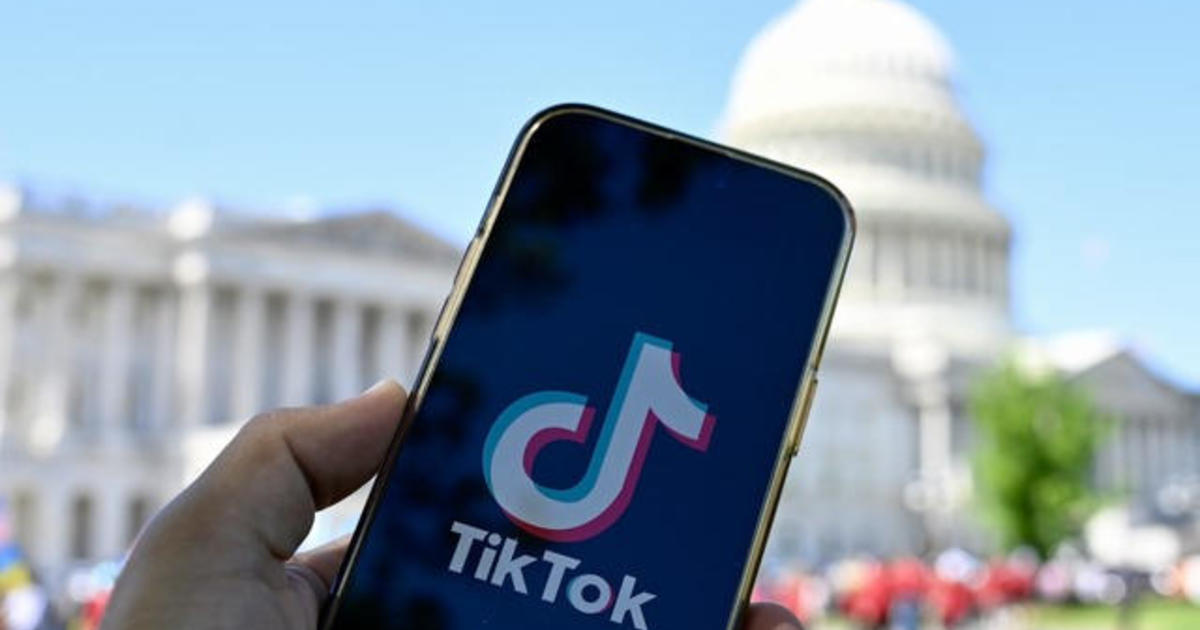
TikTok could soon be sold. Here's how much it's worth.
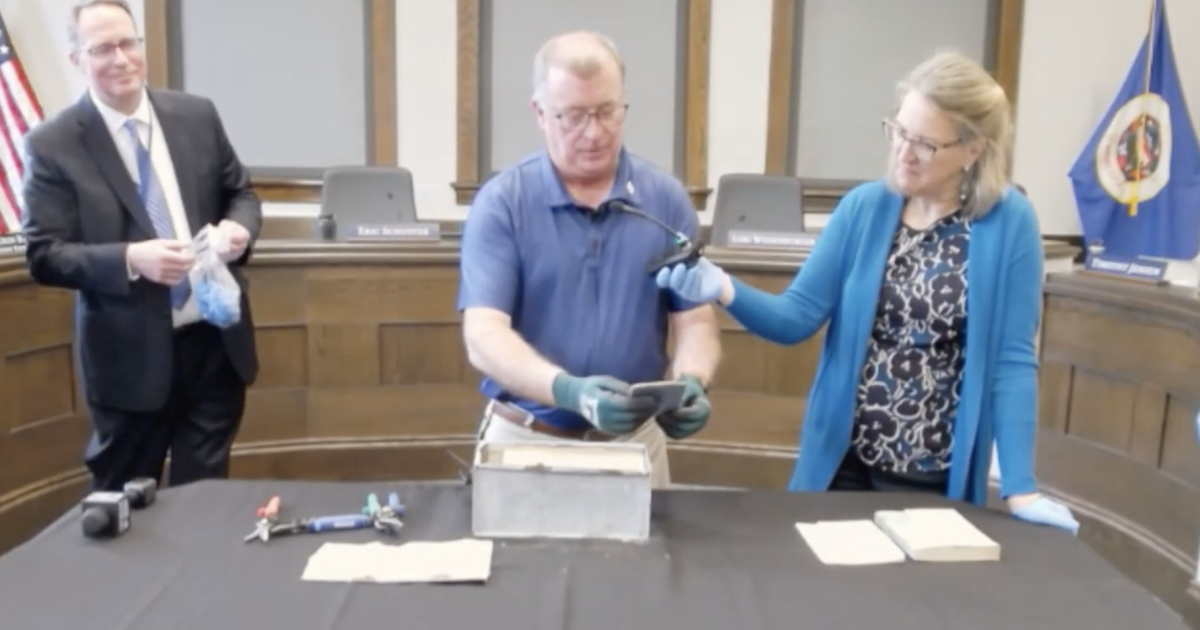
Century-old time capsule found at Minnesota high school
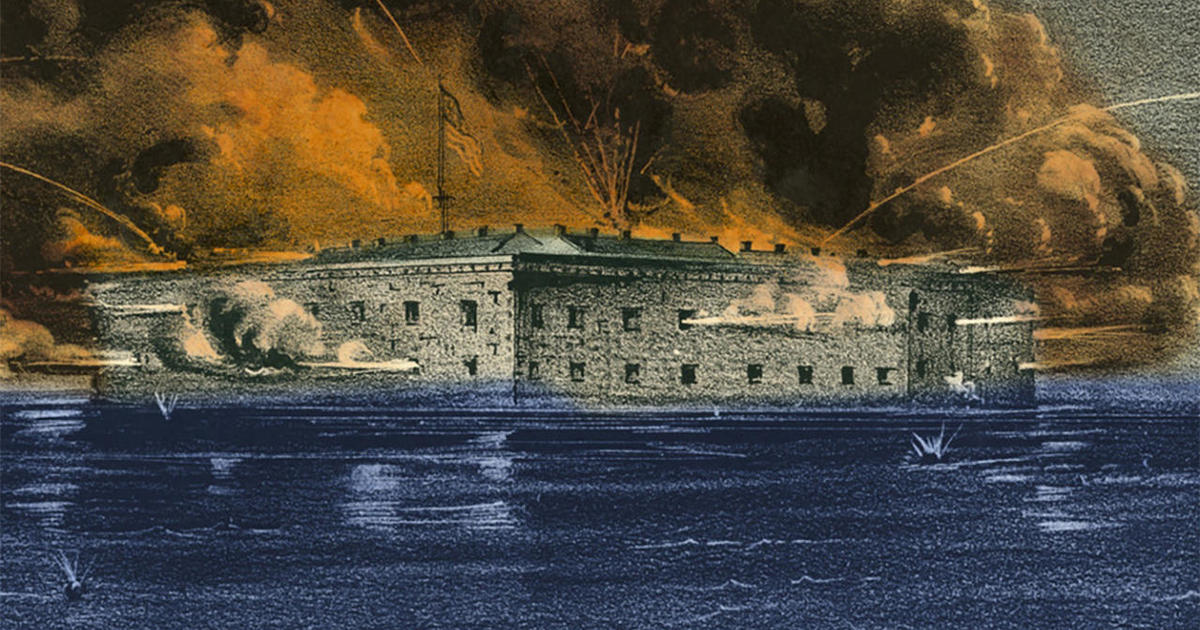
"The Demon of Unrest": Recounting the first shots of the Civil War
- Skip to main content
- Keyboard shortcuts for audio player
NPR editor Uri Berliner resigns with blast at new CEO

David Folkenflik

Uri Berliner resigned from NPR on Wednesday saying he could not work under the new CEO Katherine Maher. He cautioned that he did not support calls to defund NPR. Uri Berliner hide caption
Uri Berliner resigned from NPR on Wednesday saying he could not work under the new CEO Katherine Maher. He cautioned that he did not support calls to defund NPR.
NPR senior business editor Uri Berliner resigned this morning, citing the response of the network's chief executive to his outside essay accusing NPR of losing the public's trust.
"I am resigning from NPR, a great American institution where I have worked for 25 years," Berliner wrote in an email to CEO Katherine Maher. "I respect the integrity of my colleagues and wish for NPR to thrive and do important journalism. But I cannot work in a newsroom where I am disparaged by a new CEO whose divisive views confirm the very problems at NPR I cite in my Free Press essay."
NPR and Maher declined to comment on his resignation.
The Free Press, an online site embraced by journalists who believe that the mainstream media has become too liberal, published Berliner's piece last Tuesday. In it, he argued that NPR's coverage has increasingly reflected a rigid progressive ideology. And he argued that the network's quest for greater diversity in its workforce — a priority under prior chief executive John Lansing – has not been accompanied by a diversity of viewpoints presented in NPR shows, podcasts or online coverage.
Later that same day, NPR pushed back against Berliner's critique.
"We're proud to stand behind the exceptional work that our desks and shows do to cover a wide range of challenging stories," NPR's chief news executive, Edith Chapin, wrote in a memo to staff . "We believe that inclusion — among our staff, with our sourcing, and in our overall coverage — is critical to telling the nuanced stories of this country and our world."
Yet Berliner's commentary has been embraced by conservative and partisan Republican critics of the network, including former President Donald Trump and the activist Christopher Rufo.
Rufo is posting a parade of old social media posts from Maher, who took over NPR last month. In two examples, she called Trump a racist and also seemed to minimize the effects of rioting in 2020. Rufo is using those to rally public pressure for Maher's ouster, as he did for former Harvard University President Claudine Gay .
Others have used the moment to call for the elimination of federal funding for NPR – less than one percent of its roughly $300 million annual budget – and local public radio stations, which derive more of their funding from the government.

NPR names tech executive Katherine Maher to lead in turbulent era
Berliner reiterated in his resignation letter that he does not support such calls.
In a brief interview, he condemned a statement Maher issued Friday in which she suggested that he had questioned "whether our people are serving our mission with integrity, based on little more than the recognition of their identity." She called that "profoundly disrespectful, hurtful, and demeaning."
Berliner subsequently exchanged emails with Maher, but she did not address those comments.
"It's been building up," Berliner said of his decision to resign, "and it became clear it was on today."
For publishing his essay in The Free Press and appearing on its podcast, NPR had suspended Berliner for five days without pay. Its formal rebuke noted he had done work outside NPR without its permission, as is required, and shared proprietary information.
(Disclosure: Like Berliner, I am part of NPR's Business Desk. He has edited many of my past stories. But he did not see any version of this article or participate in its preparation before it was posted publicly.)
Earlier in the day, Berliner forwarded to NPR editors and other colleagues a note saying he had "never questioned" their integrity and had been trying to raise these issues within the newsroom for more than seven years.
What followed was an email he had sent to newsroom leaders after Trump's 2016 win. He wrote then: "Primarily for the sake of our journalism, we can't align ourselves with a tribe. So we don't exist in a cocoon that blinds us to the views and experience of tens of millions of our fellow citizens."
Berliner's critique has inspired anger and dismay within the network. Some colleagues said they could no longer trust him after he chose to publicize such concerns rather than pursue them as part of ongoing newsroom debates, as is customary. Many signed a letter to Maher and Edith Chapin, NPR's chief news executive. They asked for clarity on, among other things, how Berliner's essay and the resulting public controversy would affect news coverage.
Yet some colleagues privately said Berliner's critique carried some truth. Chapin also announced monthly reviews of the network's coverage for fairness and diversity - including diversity of viewpoint.
She said in a text message earlier this week that that initiative had been discussed long before Berliner's essay, but "Now seemed [the] time to deliver if we were going to do it."
She added, "Healthy discussion is something we need more of."
Disclosure: This story was reported and written by NPR Media Correspondent David Folkenflik and edited by Deputy Business Editor Emily Kopp and Managing Editor Gerry Holmes. Under NPR's protocol for reporting on itself, no NPR corporate official or news executive reviewed this story before it was posted publicly.
- Katherine Maher
- uri berliner
What Do Admission Committees Look For in College Applicants?
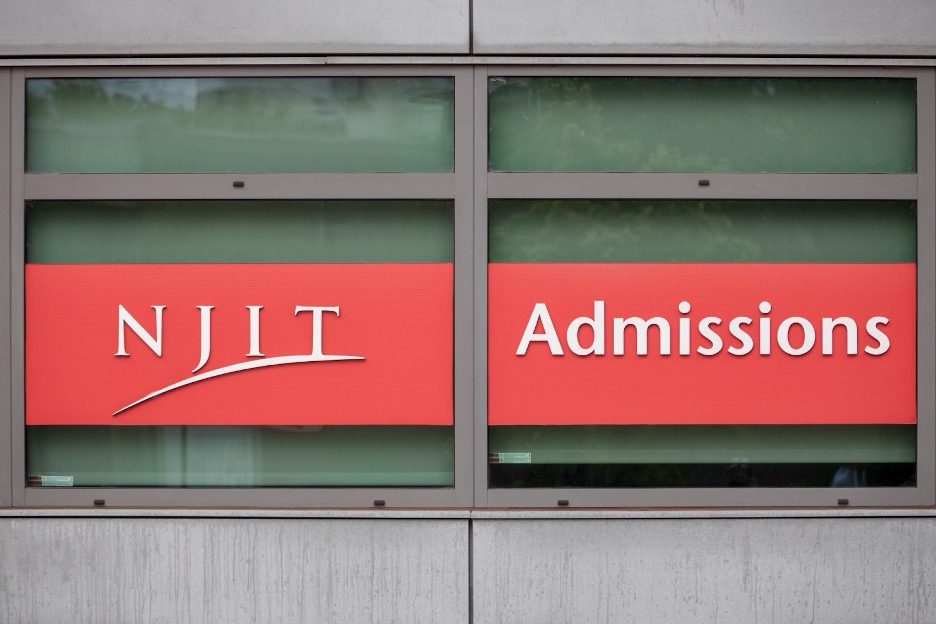
When it comes time for your college or graduate school search, the application process can be the most daunting part. From asking for recommendation letters to writing a stellar essay, applying to college is no walk in the park, especially when you're juggling multiple applications at once. After finally submitting your application, you may be ready to take a deep breath and relax. But even still, you may find yourself asking questions such as, what will the admissions committee think of my application? Was my application good enough? Understanding what admissions looks for in applicants can help you craft a stellar application.
What Do Admissions Committees Look For in College Applicants?
College applications ask for a variety of information and materials, which may initially feel overwhelming. However, it's essential to view this process as your opportunity to personalize your application and showcase your unique strengths, interests, and experiences. College admissions officers typically look for a combination of academic achievements, extracurricular activities, personal qualities, and unique experiences, taking a holistic approach to evaluating college applicants. In this blog, we'll go over each criteria the admissions committee considers when reviewing college applications so that you can feel confident in your submission.
1. Academic performance
As you probably already know, a key component to a college application is academic performance . Whether you're applying to college from high school or looking to earn your master’s degree, there are several grade criteria that admissions take into consideration. Not only is your GPA considered, but the types of courses you took plays an important role. Taking rigorous courses such as AP courses in high school or upper-level courses in college will strengthen your academic profile. The admissions committee wants to see evidence of strong academic performance and the ability to handle college-level coursework.

2. Essays and personal statements
Essay prompts and personal statements are a common aspect of a college application. Personal statements and essays allow you as an applicant to showcase your personality, passions, interests, and writing abilities. These writing assignments are an excellent opportunity for you to show why you’d be a great fit for the college program you’re applying to. Admissions officers look for essays that are authentic, well-written, and demonstrate self-reflection. They also look to determine how the program will help you meet your goals. Be creative and most importantly, be yourself so that your essay can be compelling, memorable, and an accurate reflection of who you are.
3. Letters of recommendation
A letter of recommendation is your chance to further support your application from a different perspective. Letters of recommendation from teachers, counselors, coaches, supervisors, or mentors provide insights into an applicants' character, work ethic, and potential for success in college. A recommendation letter can offer anecdotes, examples, and observations that test scores and essays can’t. When requesting recommendation letters , ask academic or professional sources that you have developed a meaningful connection with and who can provide positive insights about your character and abilities. Strong letters of recommendation can help applicants stand out.
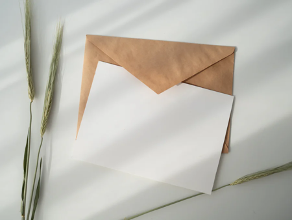
4. Extracurricular activities
Being involved in extracurricular activities can help demonstrate your well-roundedness and passions, which will further strengthen your application. Admissions committees will get a greater sense of who you are and what you are interested in, which can help them determine whether you’d be a good fit for the program. They also look to see how you are able to balance activity involvement with academics. If you’re involved in a few extracurriculars, be sure to highlight them in your application, whether it's a sports team, student club, volunteer work, or an internship.

5. Demonstrated interest
Another important factor that admission committee’s take into consideration when evaluating college applications is the students interest in the school and program they’re applying to. The committee wants to see a student’s demonstrated interest as it can help them determine that the student will fit with the campus culture and community, and that they are more likely to enroll in the school. Applying early, expressing your eagerness in your essays, showing off your knowledge of the school or program you're applying to, and attending college events such as open houses or information sessions are all ways you can demonstrate your interest to the committee.

Tips for Crafting a Standout College Application
Now that you have a better understanding of what goes on in the admissions process, here are a few tips to help you craft a standout college application.
1. Make your application strong where you can
Overall, the review of college applications by admissions is typically a holistic process and no single factor determines admission. If you feel that your application might be lacking in an area or two, you can likely compensate for it by showcasing strength elsewhere. If you have great writing skills, be sure to write a stellar essay. Or, if you participated in different extracurricular activities, highlight your accomplishments in your application. Be sure to make your application as strong as possible where you can.

2. Proofread
It may seem simple, but proofreading not just your essay, but all of your application material is a crucial part of your college application. Be sure to read over your personal statement, resume, essays, and any forms you fill out for any grammatical errors and spelling mistakes. Having a second pair of eyes can be helpful to catch any mistakes you may have missed, so don’t hesitate to ask a friend, family member, or teacher for help.

3. Stay organized
Chances are you aren’t applying to just one college. You may have a few top choices for universities you’d like to attend on your radar, and a few backup options for extra measure. Having several applications you're working on is even more reason to stay organized. Keep track of application deadlines, requirements, and submission materials for each college you're applying to. You can create a checklist or use a planner to stay organized throughout the process.

Create an outstanding college application
Crafting a great college application can be challenging, but understanding key components and guidelines can make the process easier and less stressful. When completing your application, try to do your best for each component and emphasize your strengths. All in all, the admissions committee simply wants to see if you’d be a good fit for the school, and having a strong application that aligns with your goals and the program will help you stand out. If you’re ready to begin the next step in your academic journey, apply to one of NJIT’s top-STEM programs today .
- Newsletters
- Account Activating this button will toggle the display of additional content Account Sign out
The Last Thing This Supreme Court Could Do to Shock Us
There will be no more self-soothing after this..
For three long years, Supreme Court watchers mollified themselves (and others) with vague promises that when the rubber hit the road, even the ultraconservative Federalist Society justices of the Roberts court would put democracy before party whenever they were finally confronted with the legal effort to hold Donald Trump accountable for Jan. 6. There were promising signs: They had, after all, refused to wade into the Trumpian efforts to set aside the election results in 2020. They had, after all, hewed to a kind of sanity in batting away Trumpist claims about presidential records (with the lone exception of Clarence Thomas, too long marinated in the Ginni-scented Kool-Aid to be capable of surprising us, but he was just one vote). We promised ourselves that there would be cool heads and grand bargains and that even though the court might sometimes help Trump in small ways, it would privilege the country in the end. We kept thinking that at least for Justices Brett Kavanaugh and Neil Gorsuch and Chief Justice John Roberts , the voice of reasoned never-Trumpers might still penetrate the Fox News fog. We told ourselves that at least six justices, and maybe even seven, of the most MAGA-friendly court in history would still want to ensure that this November’s elections would not be the last in history. Political hacks they may be, but they were not lawless ones.
On Thursday, during oral arguments in Trump v. United States , the Republican-appointed justices shattered those illusions. This was the case we had been waiting for, and all was made clear—brutally so. These justices donned the attitude of cynical partisans, repeatedly lending legitimacy to the former president’s outrageous claims of immunity from criminal prosecution. To at least five of the conservatives, the real threat to democracy wasn’t Trump’s attempt to overturn the election—but the Justice Department’s efforts to prosecute him for the act. These justices fear that it is Trump’s prosecution for election subversion that will “destabilize” democracy, requiring them to read a brand-new principle of presidential immunity into a Constitution that guarantees nothing of the sort. They evinced virtually no concern for our ability to continue holding free and fair elections that culminate in a peaceful transfer of power. They instead offered endless solicitude for the former president who fought that transfer of power.
However the court disposes of Trump v. U.S. , the result will almost certainly be precisely what the former president craves: more delays, more hearings, more appeals—more of everything but justice . This was not a legitimate claim from the start, but a wild attempt by Trump’s attorneys to use his former role as chief executive of the United States to shield himself from the consequences of trying to turn the presidency into a dictatorship. After so much speculation that these reasonable, rational jurists would surely dispose of this ridiculous case quickly and easily, Thursday delivered a morass of bad-faith hand-wringing on the right about the apparently unbearable possibility that a president might no longer be allowed to wield his powers of office in pursuit of illegal ends. Just as bad, we heard a constant minimization of Jan. 6, for the second week in a row , as if the insurrection were ancient history, and history that has since been dramatically overblown, presumably for Democrats’ partisan aims.
We got an early taste of this minimization in Trump v. Anderson , the Colorado case about removing Trump from the ballot. The court didn’t have the stomach to discuss the violence at the Capitol in its sharply divided decision, which found for Trump ; indeed, the majority barely mentioned the events of Jan. 6 at all when rejecting Colorado’s effort to bar from the ballot an insurrectionist who tried to steal our democracy. But we let that one be, because we figured special counsel Jack Smith would ride to the rescue. Smith has indicted Trump on election subversion charges related to Jan. 6, and the biggest obstacle standing between the special counsel and a trial has been the former president’s outlandish claim that he has absolute immunity from criminal charges as a result of his having been president at the time. Specifically, Trump alleges that his crusade to overturn the election constituted “official acts” that are immune from criminal liability under a heretofore unknown constitutional principle that the chief executive is quite literally above the law.
The U.S. Court of Appeals for the District of Columbia Circuit held in February that the president does not have blanket or absolute immunity for all actions taken in office, including “official” acts performed under the guise of executing the law (for example, Trump’s attempt to weaponize the DOJ against election results under the pretense of investigating fraud). The D.C. Circuit’s emphatic, cross-ideological decision should have been summarily affirmed by SCOTUS within days. Instead, the justices set it for arguments two months down the road—a bad omen, to put it mildly . Even then, many court watchers held out hope that Thursday morning’s oral arguments were to be the moment for the nine justices of the Supreme Court to finally indicate their readiness to take on Trump, Trumpism, illiberalism, and slouching fascism.
It was not to be. Justice Samuel Alito best captured the spirit of arguments when he asked gravely “what is required for the functioning of a stable democratic society” (good start!), then answered his own question: total immunity for criminal presidents (oh, dear). Indeed, anything but immunity would, he suggested, encourage presidents to commit more crimes to stay in office: “Now, if an incumbent who loses a very close, hotly contested election knows that a real possibility after leaving office is not that the president is going to be able to go off into a peaceful retirement but that the president may be criminally prosecuted by a bitter political opponent, will that not lead us into a cycle that destabilizes the functioning of our country as a democracy?” Never mind that the president in question did not leave office peacefully and is not sitting quietly in retirement but is instead running for presidential office once again. No, if we want criminal presidents to leave office when they lose, we have to let them commit crimes scot-free. If ever a better articulation of the legal principle “Don’t make me hit you again” has been proffered at an oral argument, it’s hard to imagine it.
Justice Sonia Sotomayor spoke to this absurdity when she responded in what could only be heard as a cri de coeur: “Stable democratic society needs good faith of public officials,” she said. “That good faith assumes that they will follow the law.” The justice noted that despite all the protections in place, a democracy can sometimes “potentially fail.” She concluded: “In the end, if it fails completely, it’s because we destroyed our democracy on our own, isn’t it?”
But it was probably too late to make this plea, because by that point we had heard both Alito and Gorsuch opine that presidents must be protected at all costs from the whims of overzealous deep state prosecutors brandishing “vague” criminal statutes. We heard Kavanaugh opine mindlessly on the independent counsel statute and how mean it is to presidents, reading extensively from Justice Antonin Scalia’s dissent in a case arguing that independent counsels are unconstitutional. (Yes, Kavanaugh worked for Ken Starr , the independent counsel.) If you’re clocking a trend here, it’s gender. Just as was the case in Anderson , it’s the women justices doing the second-shift work here: both probing the thorny constitutional and criminal questions and signaling a refusal to tank democracy over abstractions and deflections. As was the case in the EMTALA arguments, it’s the women who understand what it looks like to cheat death.
Is the president, Sotomayor asked, immune from prosecution if he orders the military to assassinate a political rival? Yes, said John Sauer, who represented Trump—though it “depends on the circumstances.” Could the president, Justice Elena Kagan asked, order the military to stage a coup? Yes, Sauer said again, depending on the circumstances. To which Kagan tartly replied that Sauer’s insistence on specifying the “circumstances” boiled down to “Under my test, it’s an official act, but that sure sounds bad, doesn’t it?” (Cue polite laughter in the chamber.)
This shameless, maximalist approach should have drawn anger from the conservative justices—indignation, at least, that Sauer took them for such easy marks. But it turns out that he calibrated his terrible arguments just right. The cynicism on display was truly breathtaking: Alito winkingly implied to Michael Dreeben, representing Smith, that we all know that Justice Department lawyers are political hacks, right? Roberts mocked Dreeben for saying “There’s no reason to worry because the prosecutor will act in good faith.”
The conservative justices are so in love with their own voices and so convinced of their own rectitude that they monologued about how improper it was for Dreeben to keep talking about the facts of this case, as opposed to the “abstract” principles at play. “I’m talking about the future!” Kavanaugh declared at one point to Dreeben, pitching himself not as Trump’s human shield but as a principled defender of the treasured constitutional right of all presidents to do crime. (We’re sure whatever rule he cooks up will apply equally to Democratic presidents, right?) Kavanaugh eventually landed on the proposition that prosecutors may charge presidents only under criminal statutes that explicitly state they can be applied to the president. Which, as Sotomayor pointed out, would mean no charges everywhere, because just a tiny handful of statutes are stamped with the label “CAN BE APPLIED TO PRESIDENT.”
The words bold and fearless action were repeated on a loop today, as a kind of mantra of how effective presidents must be free to act quickly and decisively to save democracy from the many unanticipated threats it faces. And yet the court—which has been asked to take bold and fearless action to deter the person who called Georgia’s secretary of state to demand that he alter the vote count, and threatened to fire DOJ officials who would not help steal an election—is backing away from its own duty. The prospect of a criminal trial for a criminal president shocked and appalled five men: Thomas, Alito, Kavanaugh, and Gorsuch suggested that Smith’s entire prosecution is unconstitutional; meanwhile, Roberts sounded eager at times to handle the case just a hair more gracefully: by cutting out its heart by preventing the jury from hearing about “official acts” (which lie at the center of the alleged conspiracy). Justice Amy Coney Barrett was far more measured, teasing out a compromise with Dreeben that would compel the trial court to tell the jury it could not impose criminal liability for these “official” acts, only “private ones.” Remember, drawing that line would require months of hearings and appeals, pushing any trial into 2025 or beyond. The president who tried to steal the most recent election is running in the next one, which is happening in mere months.
The liberal justices tried their best to make the case that justice required denying Trump’s sweeping immunity claim, permitting the trial to move forward, and sorting out lingering constitutional issues afterward, as virtually all other criminal defendants must do. They got little traction. Everyone on that bench was well aware that the entire nation was listening to arguments; that the whole nation wants to understand whether Trump’s refusal to concede the 2020 election was an existential threat to democracy or a lark. Five justices sent the message, loud and clear, that they are far more worried about Trump’s prosecution at the hands of the deep-state DOJ than about his alleged crimes, which were barely mentioned. This trial will almost certainly face yet more delays. These delays might mean that its subject could win back the presidency in the meantime and render the trial moot. But the court has now signaled that nothing he did was all that serious and that the danger he may pose is not worth reining in. The real threats they see are the ones Trump himself shouts from the rooftops: witch hunts and partisan Biden prosecutors. These men have picked their team. The rest hardly matters.
- Share full article
Advertisement
Supported by
Guest Essay
I Thought the Bragg Case Against Trump Was a Legal Embarrassment. Now I Think It’s a Historic Mistake.

By Jed Handelsman Shugerman
Mr. Shugerman is a law professor at Boston University.
About a year ago, when Alvin Bragg, the Manhattan district attorney, indicted former President Donald Trump, I was critical of the case and called it an embarrassment. I thought an array of legal problems would and should lead to long delays in federal courts.
After listening to Monday’s opening statement by prosecutors, I still think the district attorney has made a historic mistake. Their vague allegation about “a criminal scheme to corrupt the 2016 presidential election” has me more concerned than ever about their unprecedented use of state law and their persistent avoidance of specifying an election crime or a valid theory of fraud.
To recap: Mr. Trump is accused in the case of falsifying business records. Those are misdemeanor charges. To elevate it to a criminal case, Mr. Bragg and his team have pointed to potential violations of federal election law and state tax fraud. They also cite state election law, but state statutory definitions of “public office” seem to limit those statutes to state and local races.
Both the misdemeanor and felony charges require that the defendant made the false record with “intent to defraud.” A year ago, I wondered how entirely internal business records (the daily ledger, pay stubs and invoices) could be the basis of any fraud if they are not shared with anyone outside the business. I suggested that the real fraud was Mr. Trump’s filing an (allegedly) false report to the Federal Election Commission, and that only federal prosecutors had jurisdiction over that filing.
A recent conversation with Jeffrey Cohen, a friend, Boston College law professor and former prosecutor, made me think that the case could turn out to be more legitimate than I had originally thought. The reason has to do with those allegedly falsified business records: Most of them were entered in early 2017, generally before Mr. Trump filed his Federal Election Commission report that summer. Mr. Trump may have foreseen an investigation into his campaign, leading to its financial records. He may have falsely recorded these internal records before the F.E.C. filing as consciously part of the same fraud: to create a consistent paper trail and to hide intent to violate federal election laws, or defraud the F.E.C.
In short: It’s not the crime; it’s the cover-up.
Looking at the case in this way might address concerns about state jurisdiction. In this scenario, Mr. Trump arguably intended to deceive state investigators, too. State investigators could find these inconsistencies and alert federal agencies. Prosecutors could argue that New York State agencies have an interest in detecting conspiracies to defraud federal entities; they might also have a plausible answer to significant questions about whether New York State has jurisdiction or whether this stretch of a state business filing law is pre-empted by federal law.
However, this explanation is a novel interpretation with many significant legal problems. And none of the Manhattan district attorney’s filings or today’s opening statement even hint at this approach.
Instead of a theory of defrauding state regulators, Mr. Bragg has adopted a weak theory of “election interference,” and Justice Juan Merchan described the case , in his summary of it during jury selection, as an allegation of falsifying business records “to conceal an agreement with others to unlawfully influence the 2016 election.”
As a reality check: It is legal for a candidate to pay for a nondisclosure agreement. Hush money is unseemly, but it is legal. The election law scholar Richard Hasen rightly observed , “Calling it election interference actually cheapens the term and undermines the deadly serious charges in the real election interference cases.”
In Monday’s opening argument, the prosecutor Matthew Colangelo still evaded specifics about what was illegal about influencing an election, but then he claimed , “It was election fraud, pure and simple.” None of the relevant state or federal statutes refer to filing violations as fraud. Calling it “election fraud” is a legal and strategic mistake, exaggerating the case and setting up the jury with high expectations that the prosecutors cannot meet.
The most accurate description of this criminal case is a federal campaign finance filing violation. Without a federal violation (which the state election statute is tethered to), Mr. Bragg cannot upgrade the misdemeanor counts into felonies. Moreover, it is unclear how this case would even fulfill the misdemeanor requirement of “intent to defraud” without the federal crime.
In stretching jurisdiction and trying a federal crime in state court, the Manhattan district attorney is now pushing untested legal interpretations and applications. I see three red flags raising concerns about selective prosecution upon appeal.
First, I could find no previous case of any state prosecutor relying on the Federal Election Campaign Act either as a direct crime or a predicate crime. Whether state prosecutors have avoided doing so as a matter of law, norms or lack of expertise, this novel attempt is a sign of overreach.
Second, Mr. Trump’s lawyers argued that the New York statute requires that the predicate (underlying) crime must also be a New York crime, not a crime in another jurisdiction. The district attorney responded with judicial precedents only about other criminal statutes, not the statute in this case. In the end, the prosecutors could not cite a single judicial interpretation of this particular statute supporting their use of the statute (a plea deal and a single jury instruction do not count).
Third, no New York precedent has allowed an interpretation of defrauding the general public. Legal experts have noted that such a broad “election interference” theory is unprecedented, and a conviction based on it may not survive a state appeal.
Mr. Trump’s legal team also undercut itself for its decisions in the past year: His lawyers essentially put all of their eggs in the meritless basket of seeking to move the trial to federal court, instead of seeking a federal injunction to stop the trial entirely. If they had raised the issues of selective or vindictive prosecution and a mix of jurisdictional, pre-emption and constitutional claims, they could have delayed the trial past Election Day, even if they lost at each federal stage.
Another reason a federal crime has wound up in state court is that President Biden’s Justice Department bent over backward not to reopen this valid case or appoint a special counsel. Mr. Trump has tried to blame Mr. Biden for this prosecution as the real “election interference.” The Biden administration’s extra restraint belies this allegation and deserves more credit.
Eight years after the alleged crime itself, it is reasonable to ask if this is more about Manhattan politics than New York law. This case should serve as a cautionary tale about broader prosecutorial abuses in America — and promote bipartisan reforms of our partisan prosecutorial system.
Nevertheless, prosecutors should have some latitude to develop their case during trial, and maybe they will be more careful and precise about the underlying crime, fraud and the jurisdictional questions. Mr. Trump has received sufficient notice of the charges, and he can raise his arguments on appeal. One important principle of “ our Federalism ,” in the Supreme Court’s terms, is abstention , that federal courts should generally allow state trials to proceed first and wait to hear challenges later.
This case is still an embarrassment, in terms of prosecutorial ethics and apparent selectivity. Nevertheless, each side should have its day in court. If convicted, Mr. Trump can fight many other days — and perhaps win — in appellate courts. But if Monday’s opening is a preview of exaggerated allegations, imprecise legal theories and persistently unaddressed problems, the prosecutors might not win a conviction at all.
Jed Handelsman Shugerman (@jedshug) is a law professor at Boston University.
The Times is committed to publishing a diversity of letters to the editor. We’d like to hear what you think about this or any of our articles. Here are some tips . And here’s our email: [email protected] .
Follow the New York Times Opinion section on Facebook , Instagram , TikTok , WhatsApp , X and Threads .

IMAGES
VIDEO
COMMENTS
Harvard College Writing Center 5 Asking Analytical Questions When you write an essay for a course you are taking, you are being asked not only to create a product (the essay) but, more importantly, to go through a process of thinking more deeply about a question or problem related to the course. By writing about a
Essay Letter Writing: Essay letter writing is a form of written communication that combines the structure and format of an essay with the personal tone and conversational style of a letter.This type of school letter writing can be used to express personal thoughts and opinions on a variety of topics, from social issues to academic assignments.
The date gives context to your letter, so you don't want to leave it out. If you're writing a formal letter, write the date out in full with the month first, then the day, then the year. For example, a letter written on 2023-03-15, you would write March 15, 2023. In the US, you need to add a comma between the day and the year.
An essay is a focused piece of writing that explains, argues, describes, or narrates. In high school, you may have to write many different types of essays to develop your writing skills. Academic essays at college level are usually argumentative : you develop a clear thesis about your topic and make a case for your position using evidence ...
Come up with a thesis. Create an essay outline. Write the introduction. Write the main body, organized into paragraphs. Write the conclusion. Evaluate the overall organization. Revise the content of each paragraph. Proofread your essay or use a Grammar Checker for language errors. Use a plagiarism checker.
1. FICTION AS A SPRINGBOARD. Have students write as if they were a character from a piece of fiction you have been reading in class. Choosing a dramatic point in the plot, ask students to imagine they are one of the characters writing a letter to another character in the story.
How to Find Essay Writing Inspiration. If you have essays to write but are short on ideas, this section's links to prompts, example student essays, and celebrated essays by professional writers might help. You'll find writing prompts from a variety of sources, student essays to inspire you, and a number of essay writing collections.
Prompt overlap, allowing you to write one essay for similar prompts; You can build your own essay tracker using our free Google Sheets template. College essay tracker template. Choose a unique topic. Ideally, you should start brainstorming college essay topics the summer before your senior year. Keep in mind that it's easier to write a ...
The 7 Steps to Writing an Essay. This is where it gets extremely easy. This is what you're here for. We're about to break essay writing down into the simplest terms and most convenient definitions. Here's the TL;DR Version of our basic, 7-Step Essay-Writing Workflow: See, 6 main steps, and then you submit your assignment as the 7th and ...
Step 3: Decide whom you'd like to write to and what you want to say. Step 4: Write your first draft as a letter, not an essay. Step 5: Make sure the tone is appropriate to your audience and ...
Here are some tips to get you started. Start early. Do not leave it until the last minute. Give yourself time when you don't have other homework or extracurriculars hanging over your head to ...
6. Provide an overview of the essay. As you are writing a cover letter for an essay, which may also be sometimes referred to as a personal statement, you are obliged to explain what the essay is all about. This part aims to provide an initial contextualization of your essay, which would effectively assist the target reader's comprehension.
Choose between block or indented form. Include addresses and the date. Include a salutation. Write the body of your letter. Include a complimentary close. List additional information. 1. Choose the right type of paper. Your letter should be typed and printed on standard white paper.
Strategies for Essay Writing: PDFs Strategies for Essay Writing--Complete. description. Tips for Reading an Assignment Prompt. description. Asking Analytical Questions. description. Thesis. description. Introductions. description. What Do Introductions Across the Disciplines Have in Common? description. Anatomy Of a Body Paragraph.
Example cover letter for an essay Here is an example of what a quality essay cover letter might look like: Lili Eaglestone 123 Luna Lane Los Angeles, CA December 18, 2022 Dear Admissions Committee, My name is Lili Eaglestone, and I am applying to become a student at the University of Southern California for fall 2023. Writing my application essay was a delight, as I am very passionate about ...
Write with confidence, powered by AI beta. Get perfect spelling, grammar, and punctuation. Sound fluent, professional, and natural. Fine-tune your writing with word and sentence alternatives. Choose a writing style and tone that fits your audience.
An essay is a type of writing that you normally do . a in a work situation b at the high school or college level c when you want to tell a story 3 When writing an essay, it is acceptable to write in the Þ rst person (using I and me). a almost al ways b sometimes c never 4 ItÕs a good idea to write of an essay. a just one draft b several ...
Useful Words and Phrases for Writing Formal Letters. Writing a Letter or an Email. How to Write a Great Essay Quickly.
Cover letter format. Your cover letter should be one page long and use a simple, professional font, such as Arial or Helvetica, 10 to 12 points in size. Your letter should be left-aligned with single spacing and one-inch margins. Video: When and Why to Write a Cover Letter - Plus, Top Tips for Formatting.
FCE Email Example: Touring holiday. FCE Email Example: Swimming team. FCE Letter Example: School uniforms. FCE Letter Example: Letter of application. FCE Email Example: Money! An email/a letter is written in response to the situation outlined in the question. Letters and emails in the B2 First Writing paper will require a response which is ...
A National Public Radio editor who wrote a critical essay saying that his company had become intolerant of all but liberal views has resigned. Uri Berliner, an editor on NPR's business desk, posted his resignation letter on social media. Uri Berliner, a senior editor on NPR's business desk who wrote a critical essay saying that his company ...
A senior business editor at National Public Radio has resigned after writing an essay for an online news site published last week accusing the outlet of a liberal bias in its coverage.. In a ...
Maher, who became NPR's CEO in March, wrote a staff memo a few days after publication of Berliner's essay addressing his criticisms of the organization's editorial process. Among Berliner's claims ...
Many signed a letter to Maher and Edith Chapin, NPR's chief news executive. They asked for clarity on, among other things, how Berliner's essay and the resulting public controversy would affect ...
Ms. Cheney, a Republican, is a former U.S. representative from Wyoming and was vice chairwoman of the Jan. 6 select committee in the House of Representatives. On Thursday, the U.S. Supreme Court ...
Letters of recommendation from teachers, counselors, coaches, supervisors, or mentors provide insights into an applicants' character, work ethic, and potential for success in college. A recommendation letter can offer anecdotes, examples, and observations that test scores and essays can't.
Letters to the editor. STAT readers respond to First Opinion essays on site-neutral payments, free medical school tuition, and more. By Patrick Skerrett April 27, 2024. Reprints.
Re "Why We Need to Talk About Teen Sex," by Peggy Orenstein (Opinion guest essay, April 14): As a psychotherapist and psychoanalyst who has worked for decades with teens and college-age ...
However the court disposes of Trump v. U.S., the result will almost certainly be precisely what the former president craves: more delays, more hearings, more appeals—more of everything but ...
Mr. Shugerman is a law professor at Boston University. About a year ago, when Alvin Bragg, the Manhattan district attorney, indicted former President Donald Trump, I was critical of the case and ...